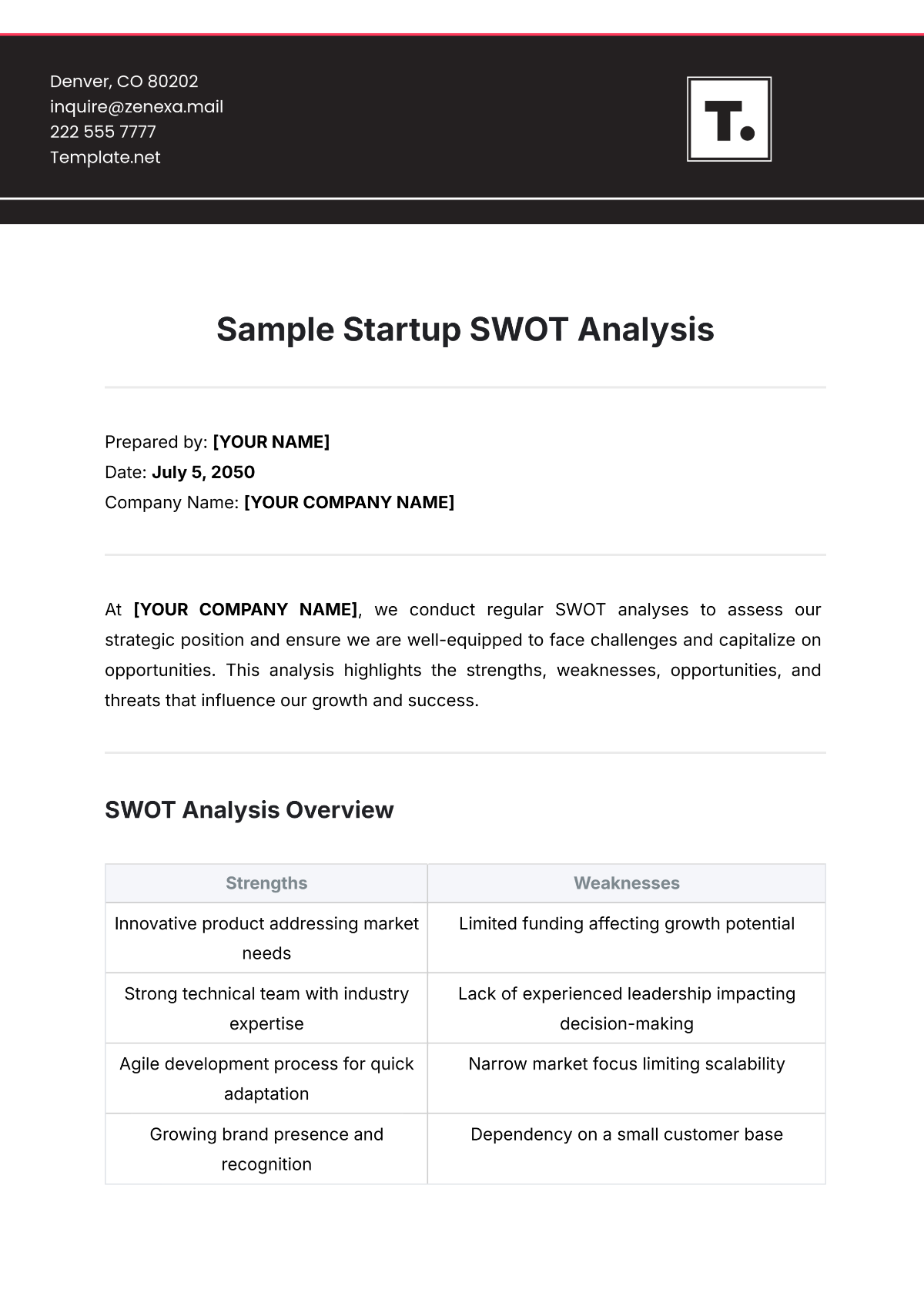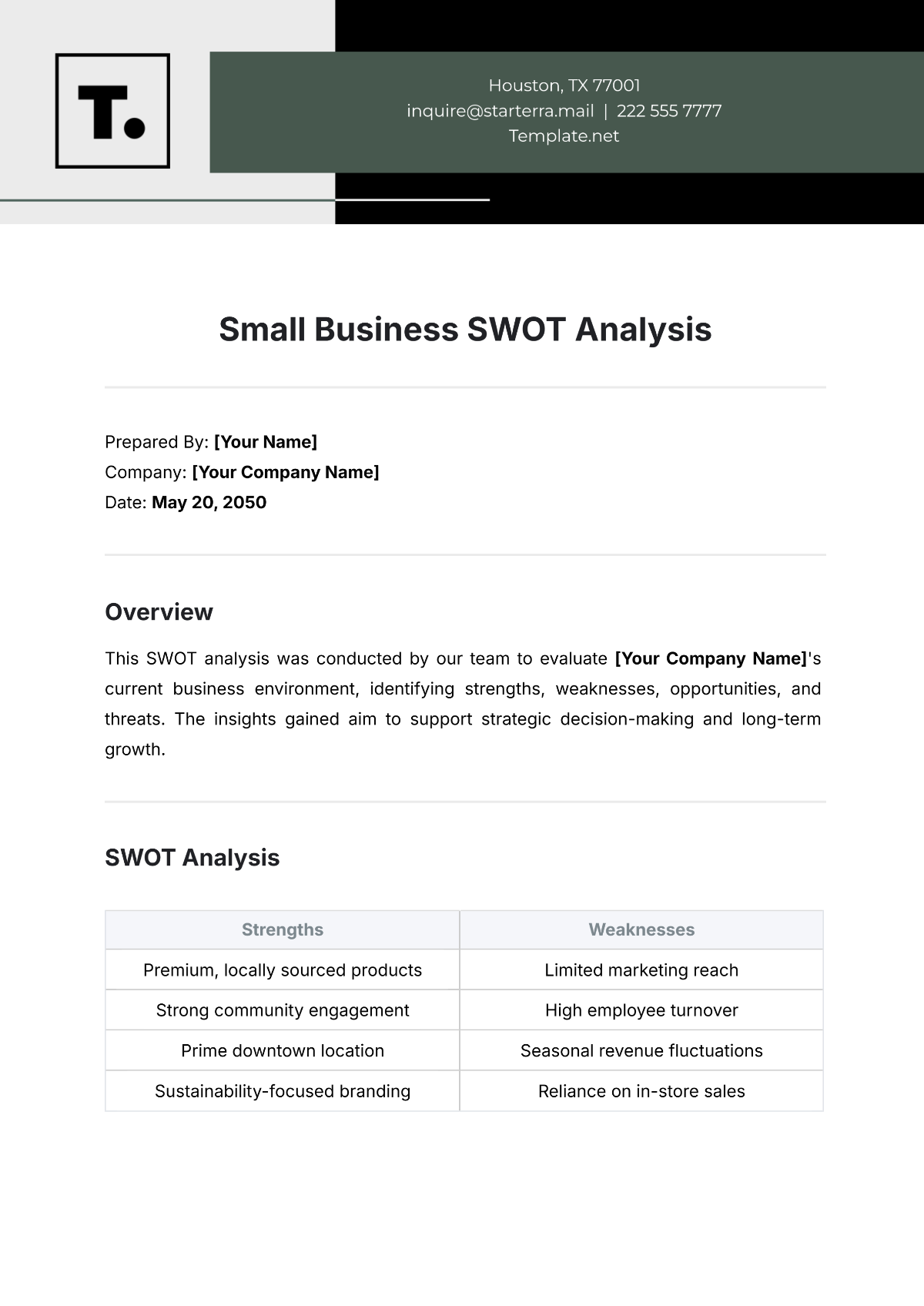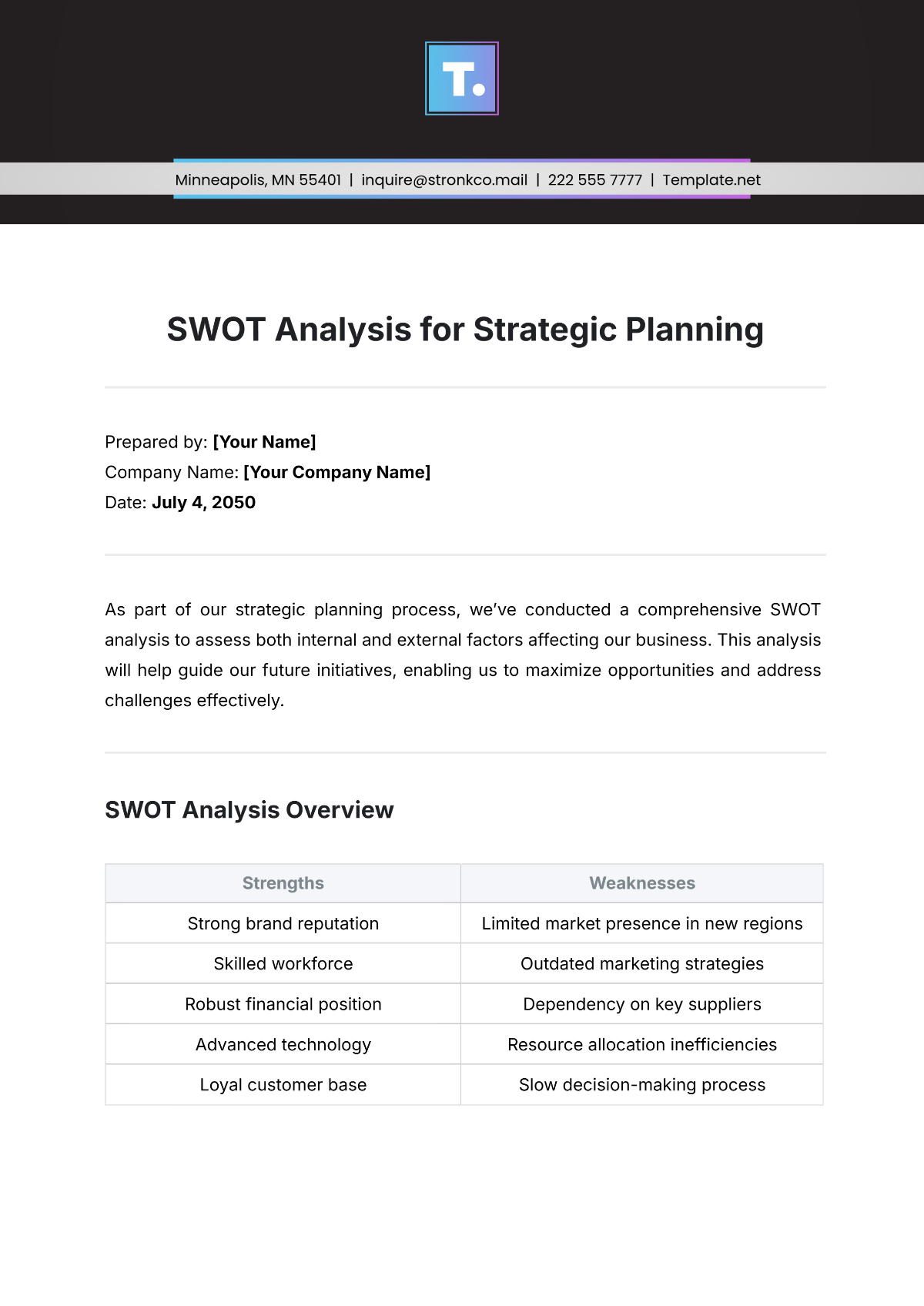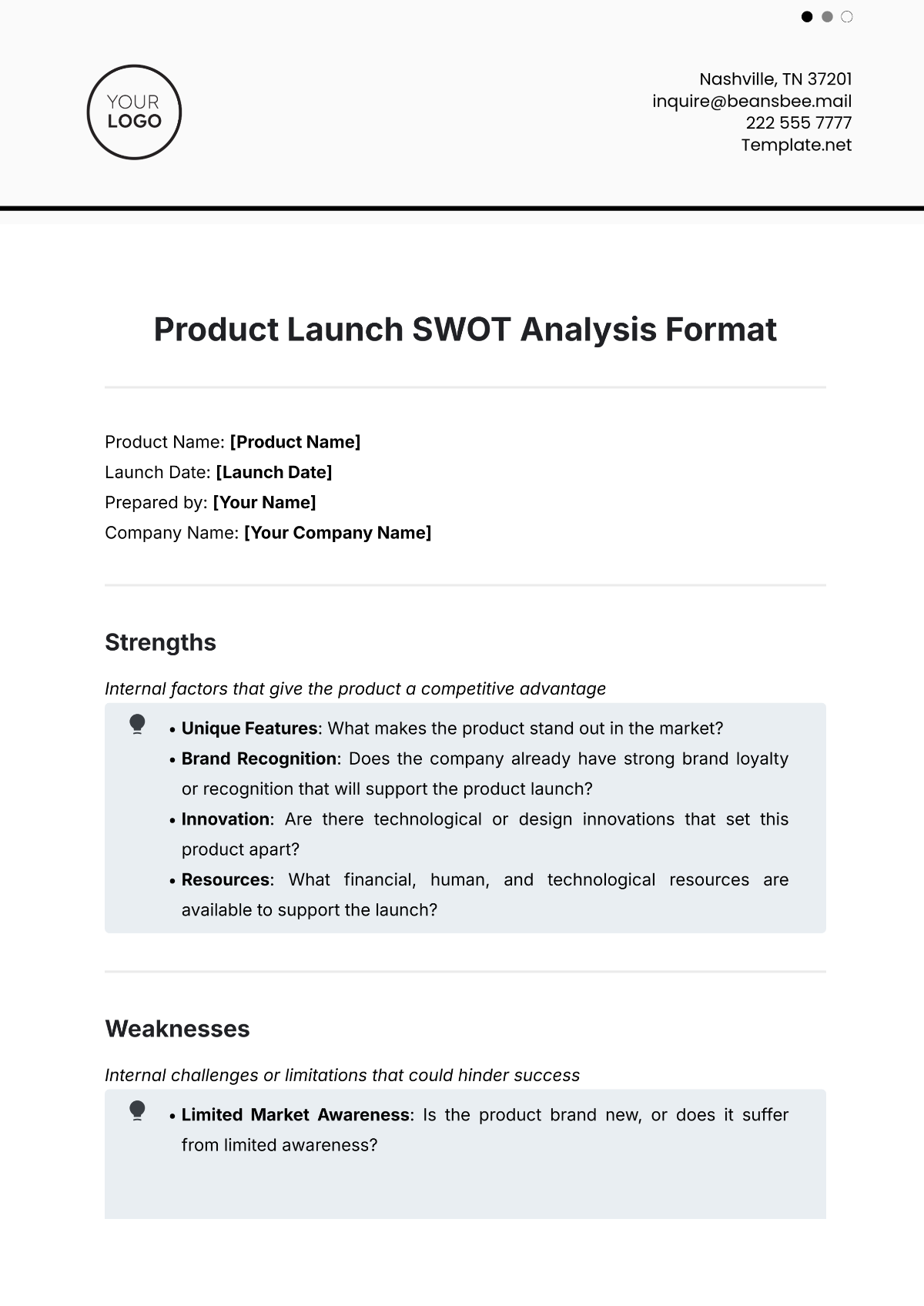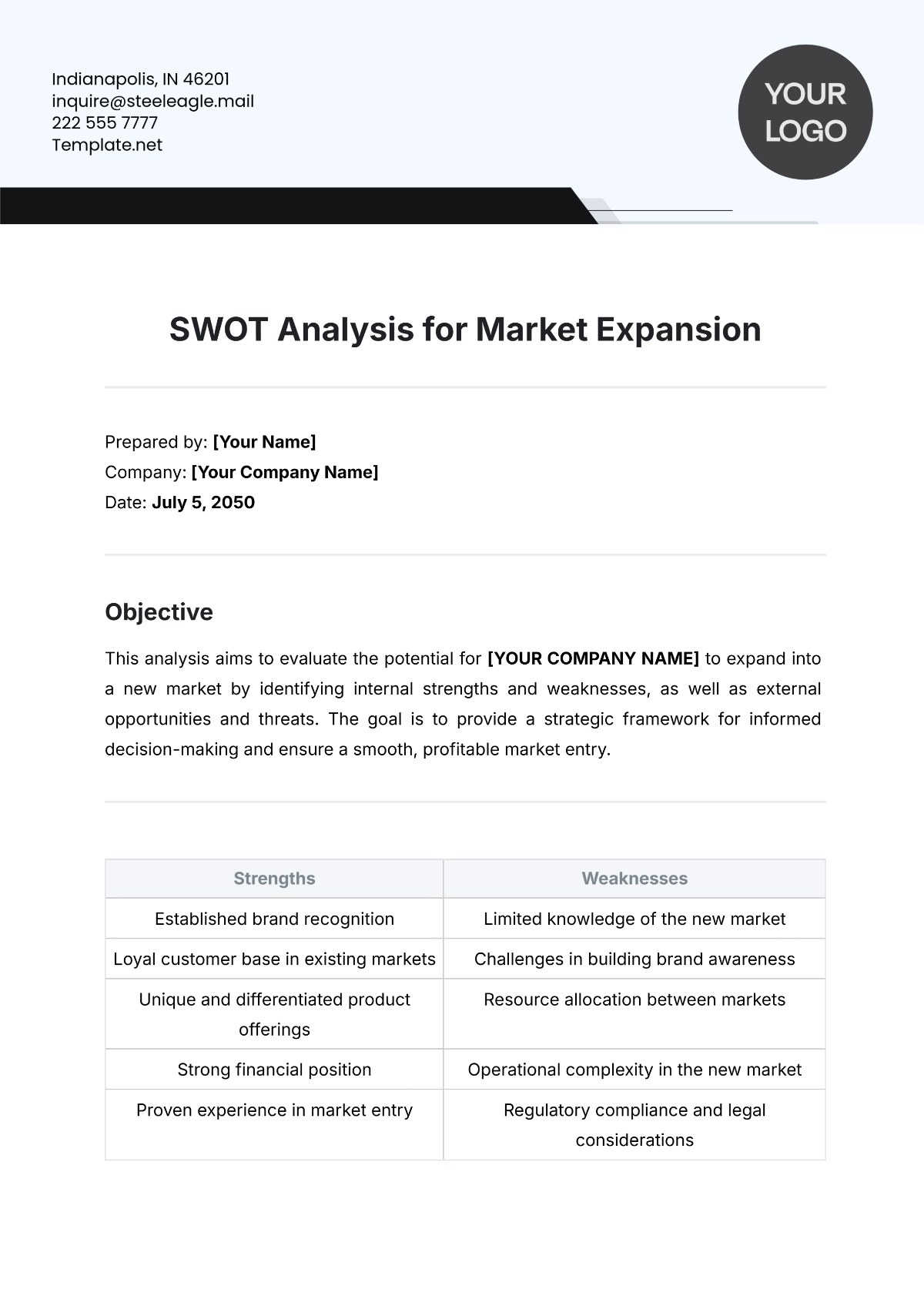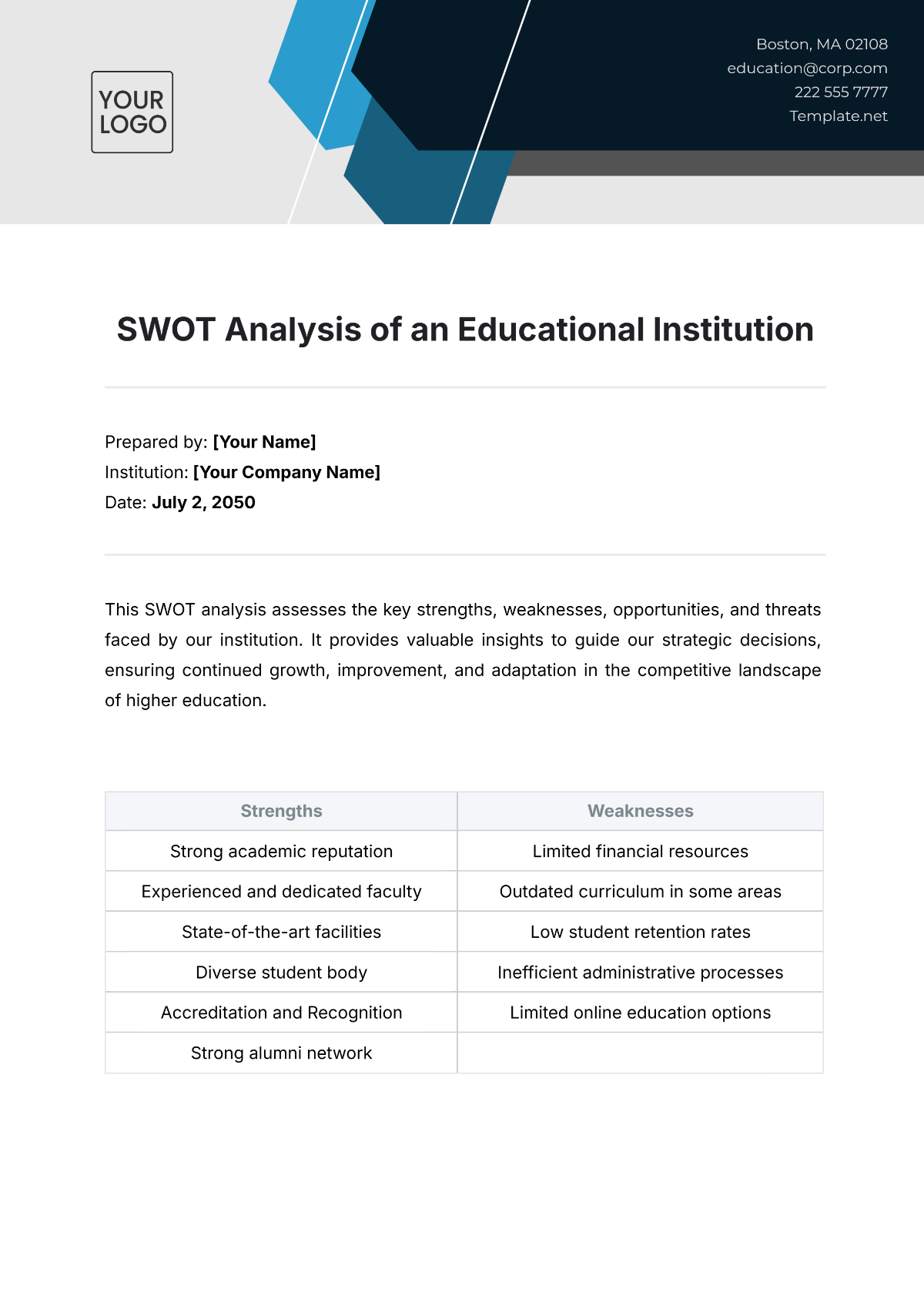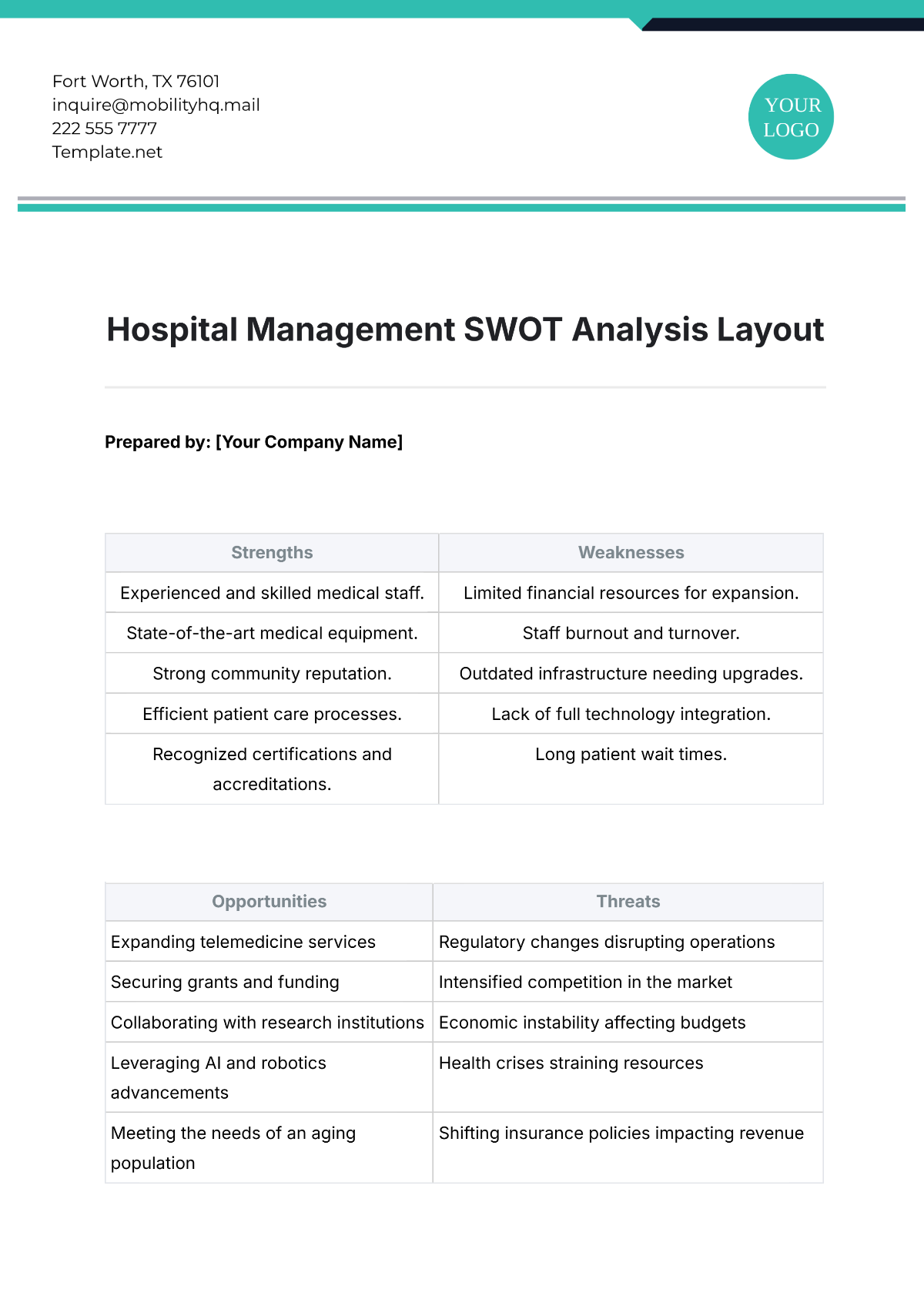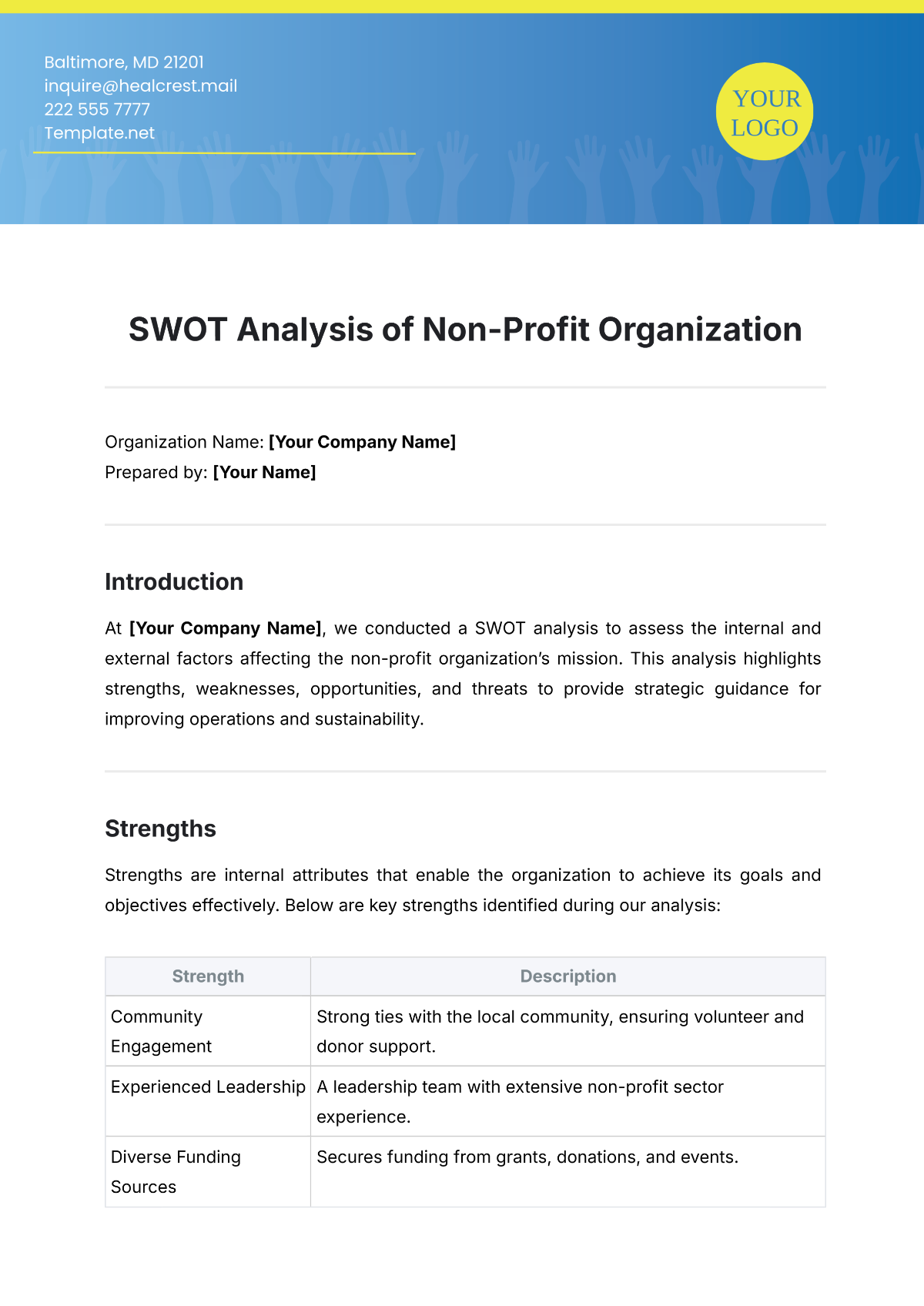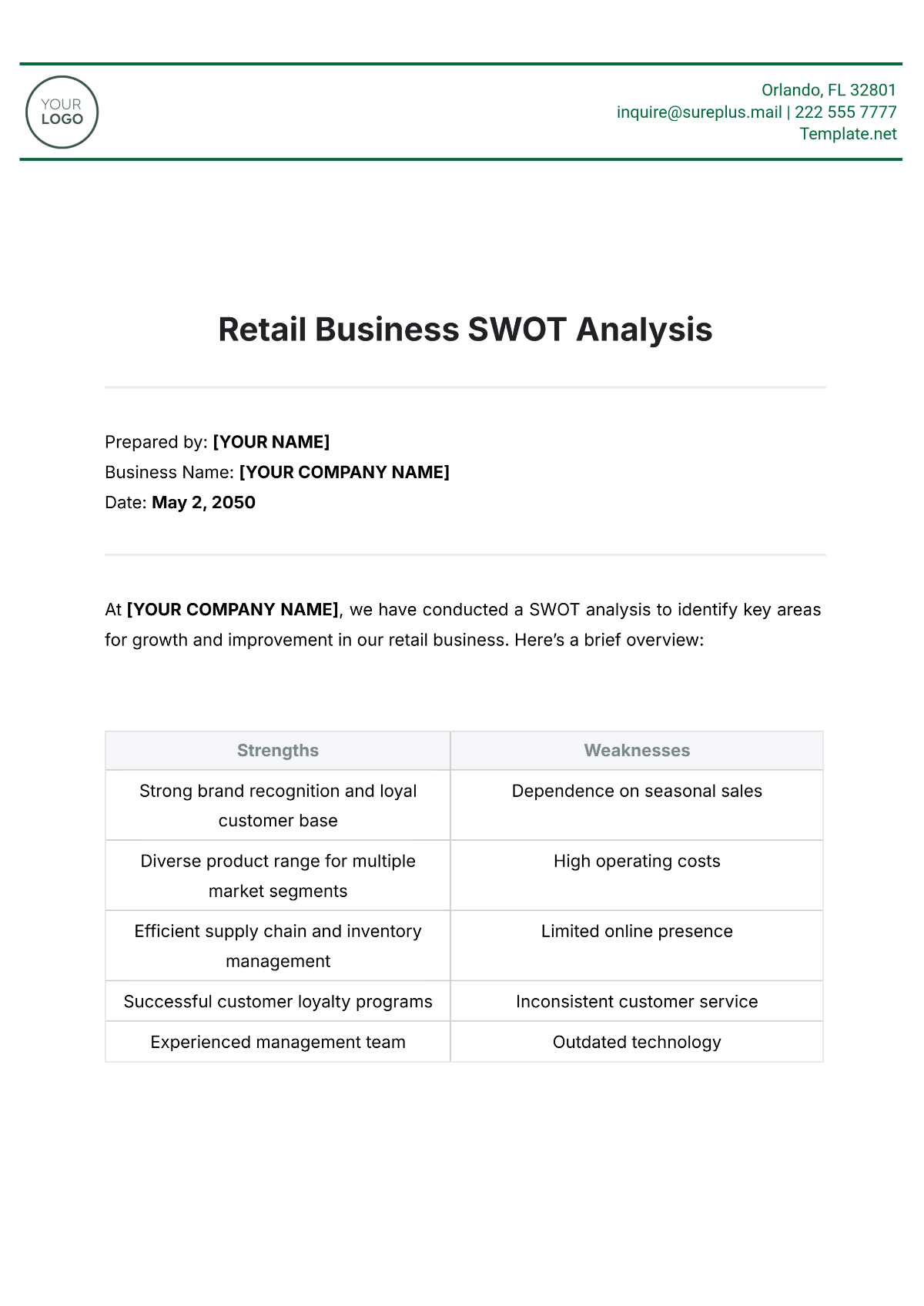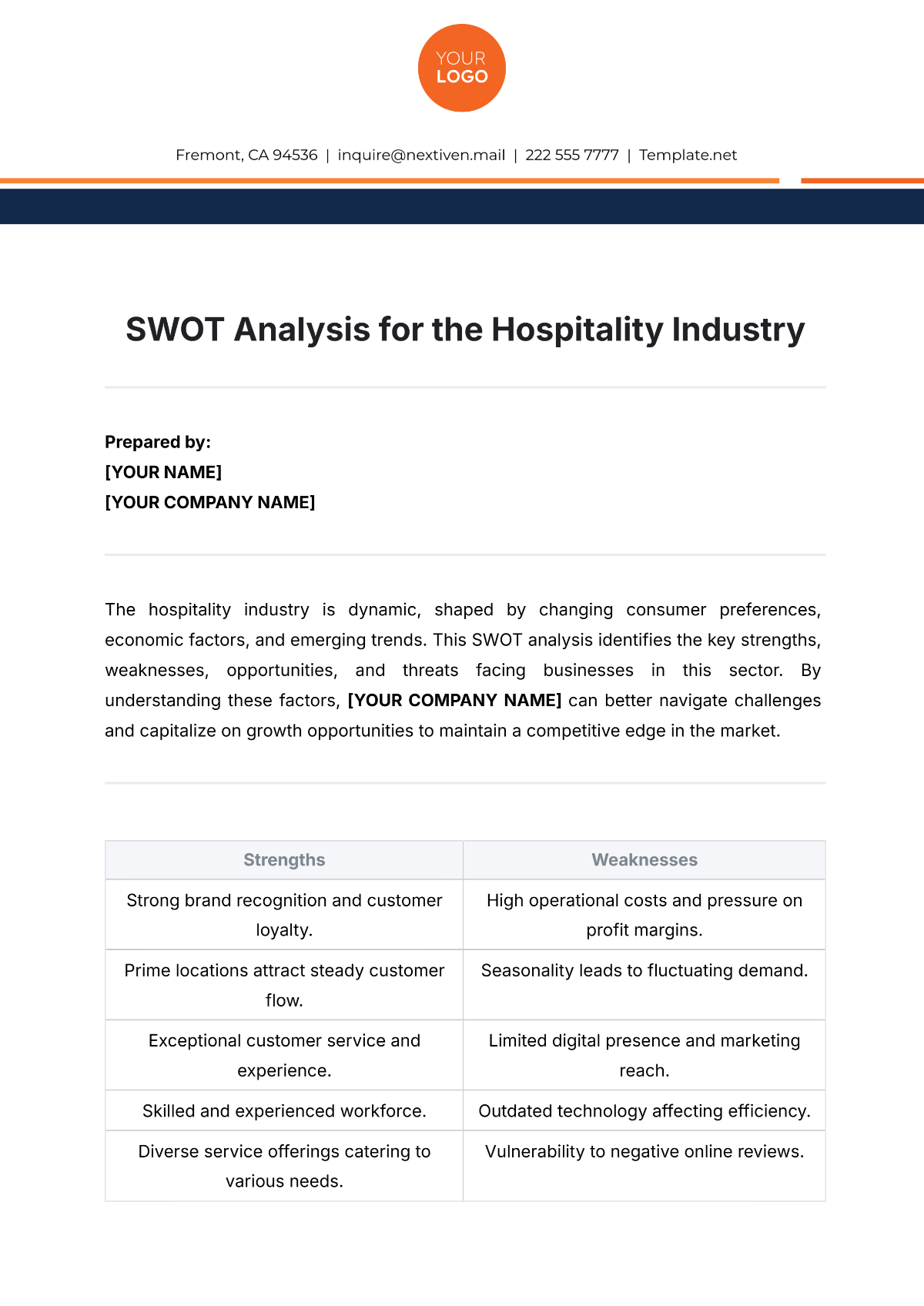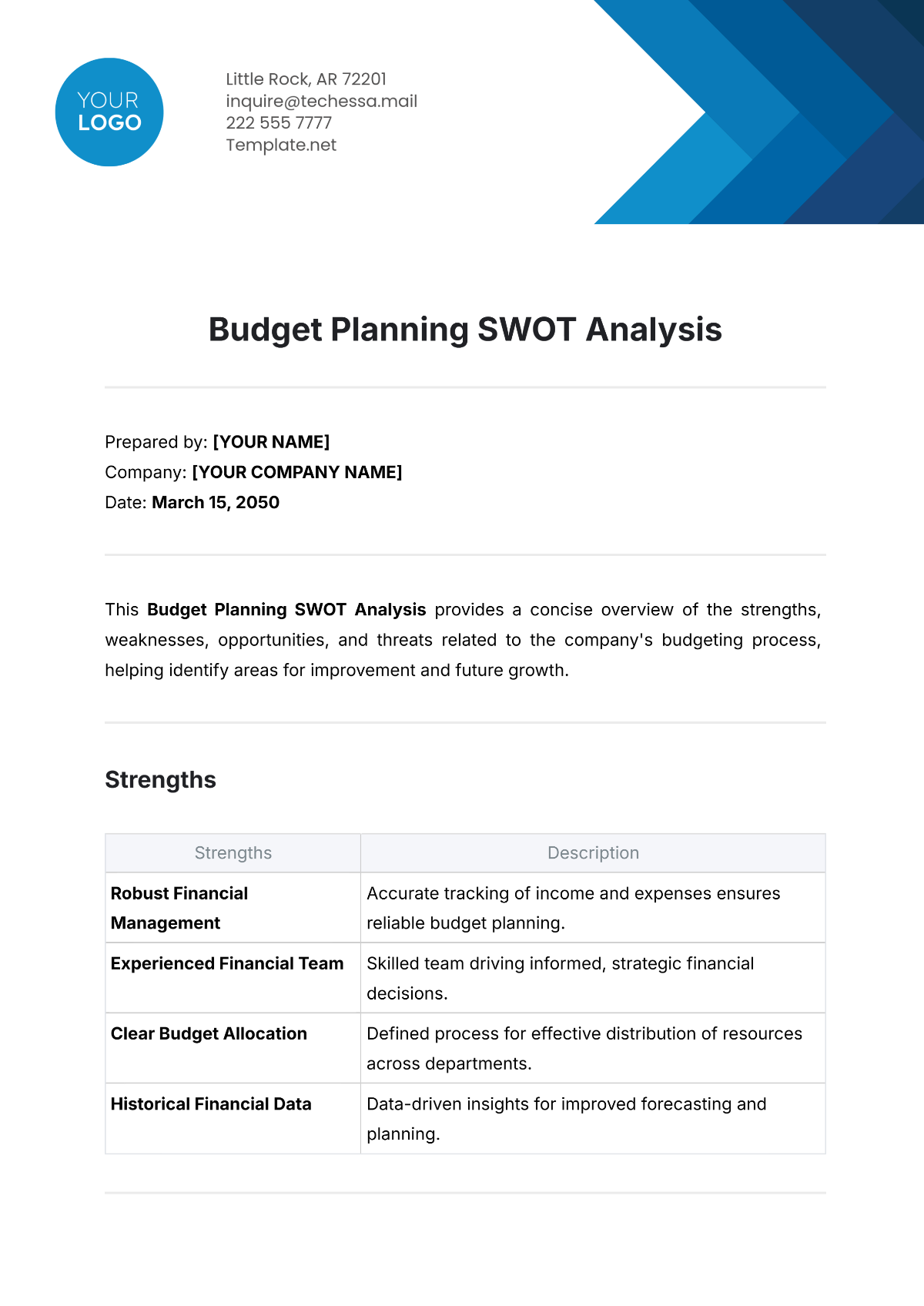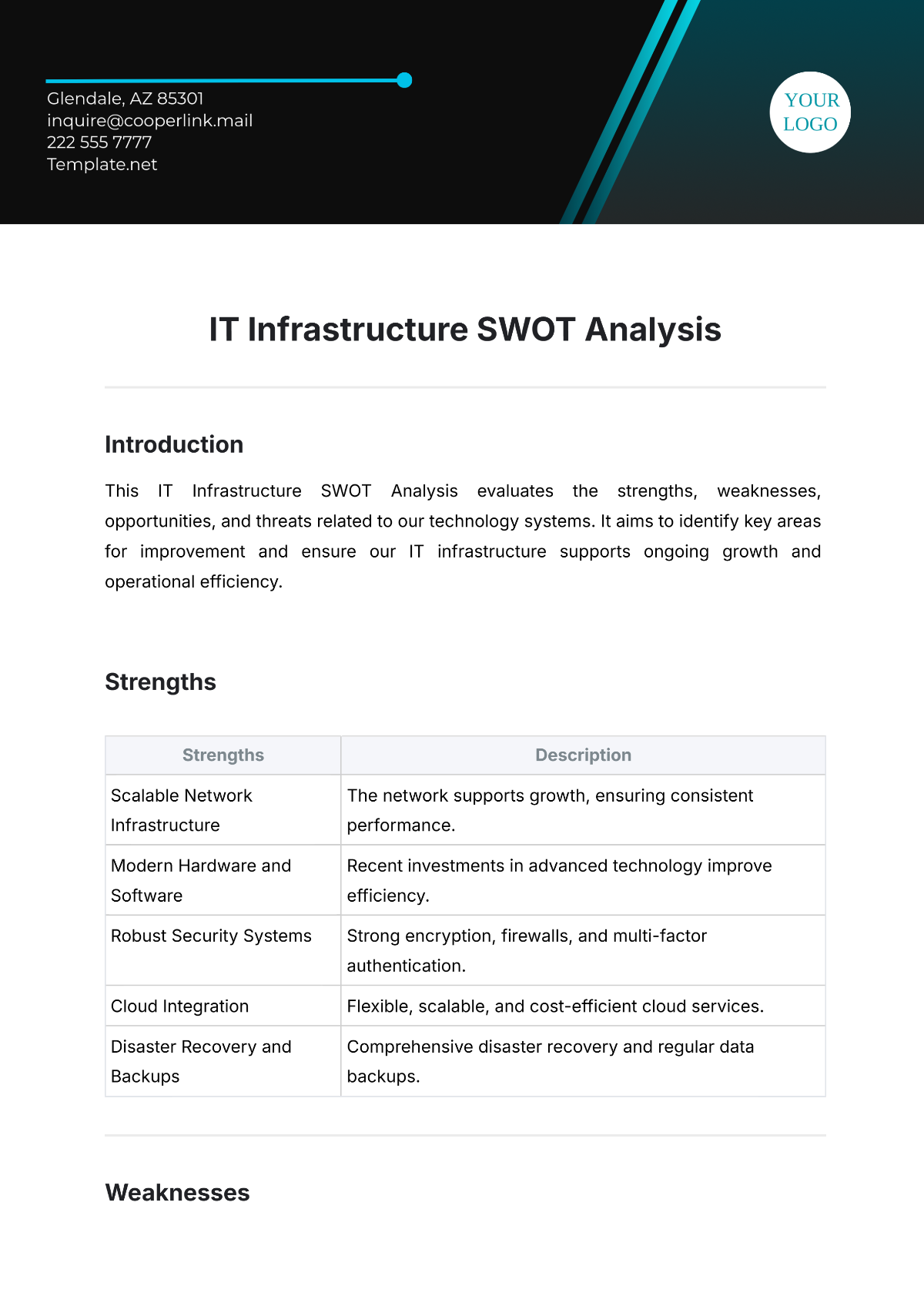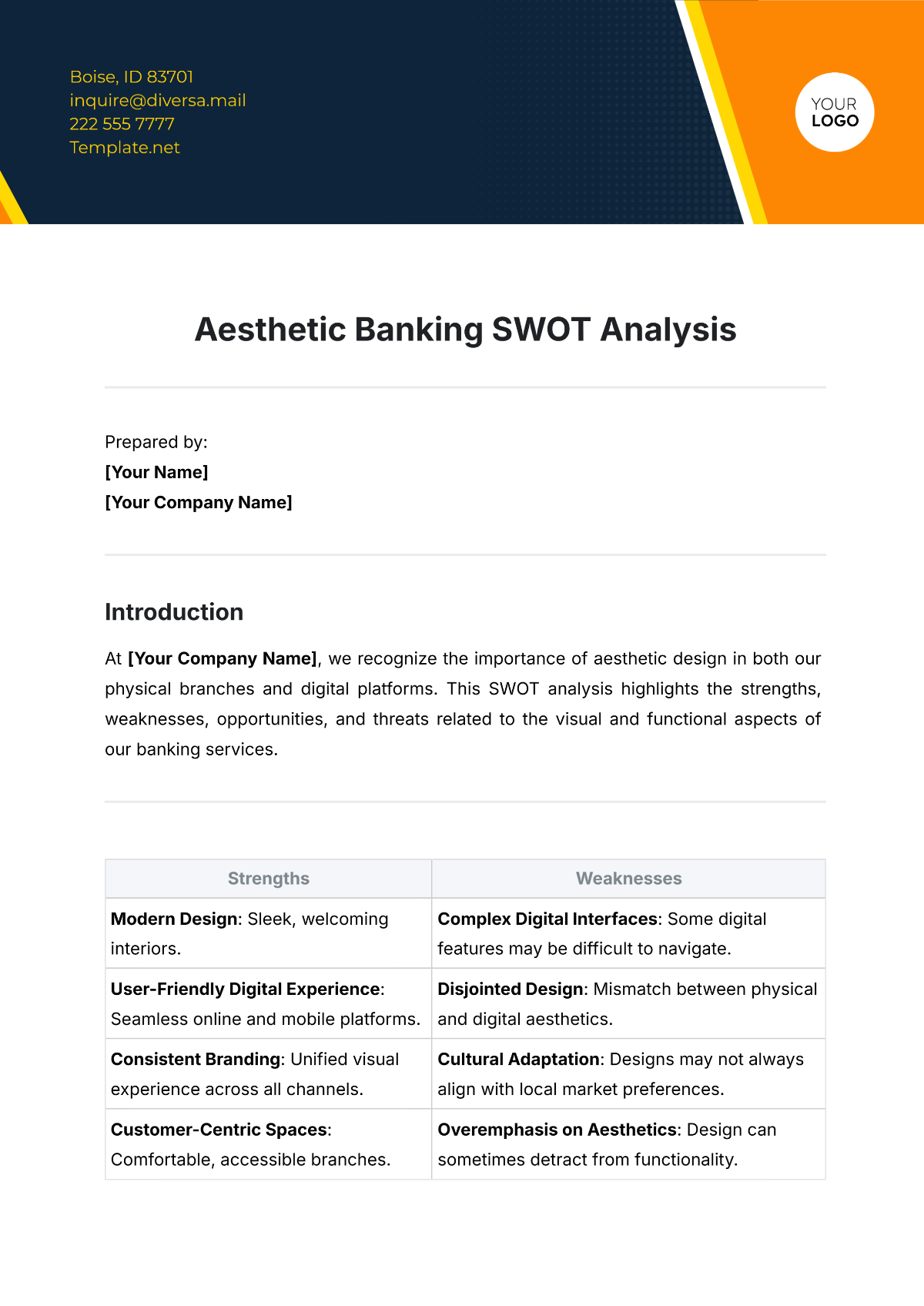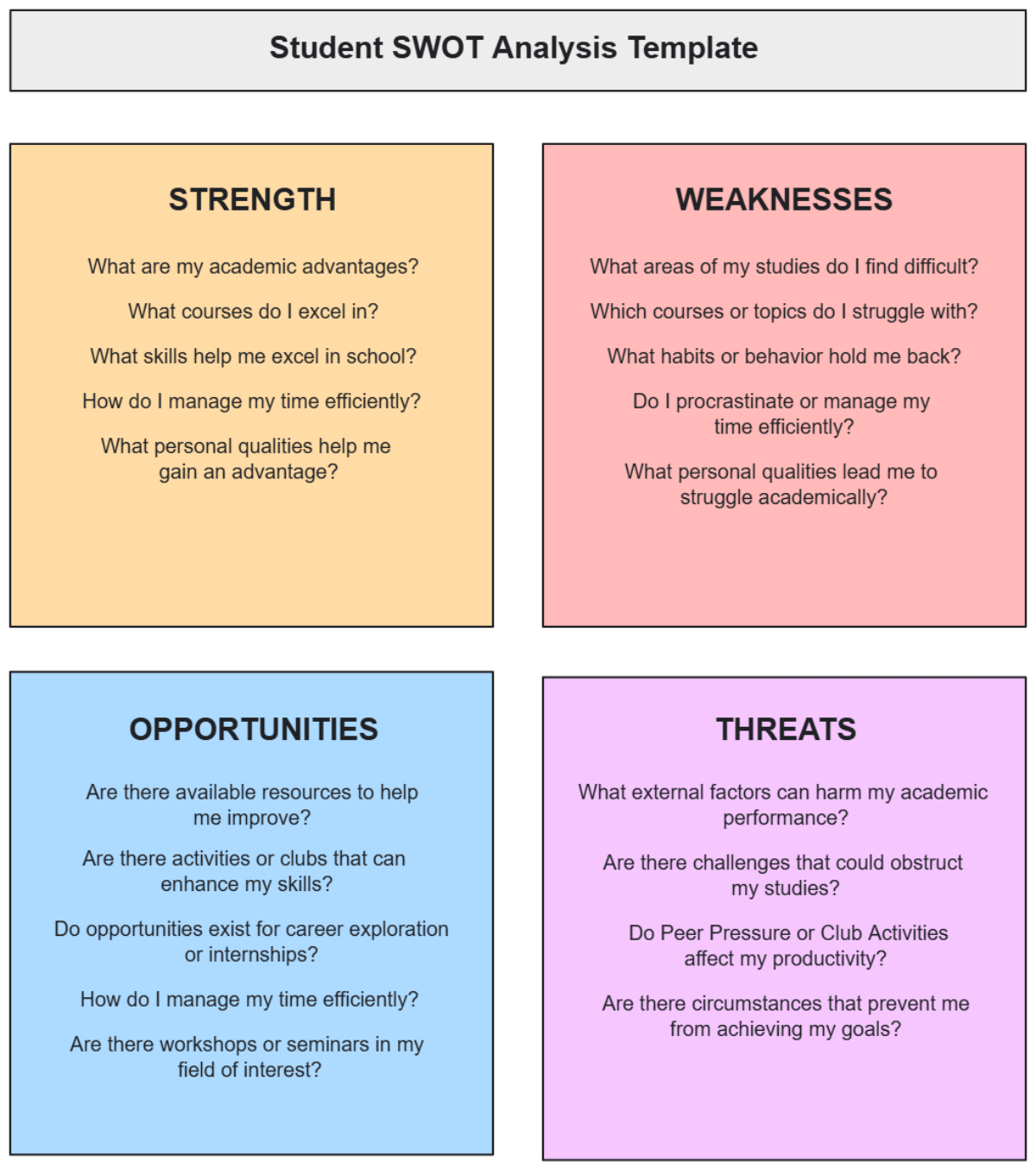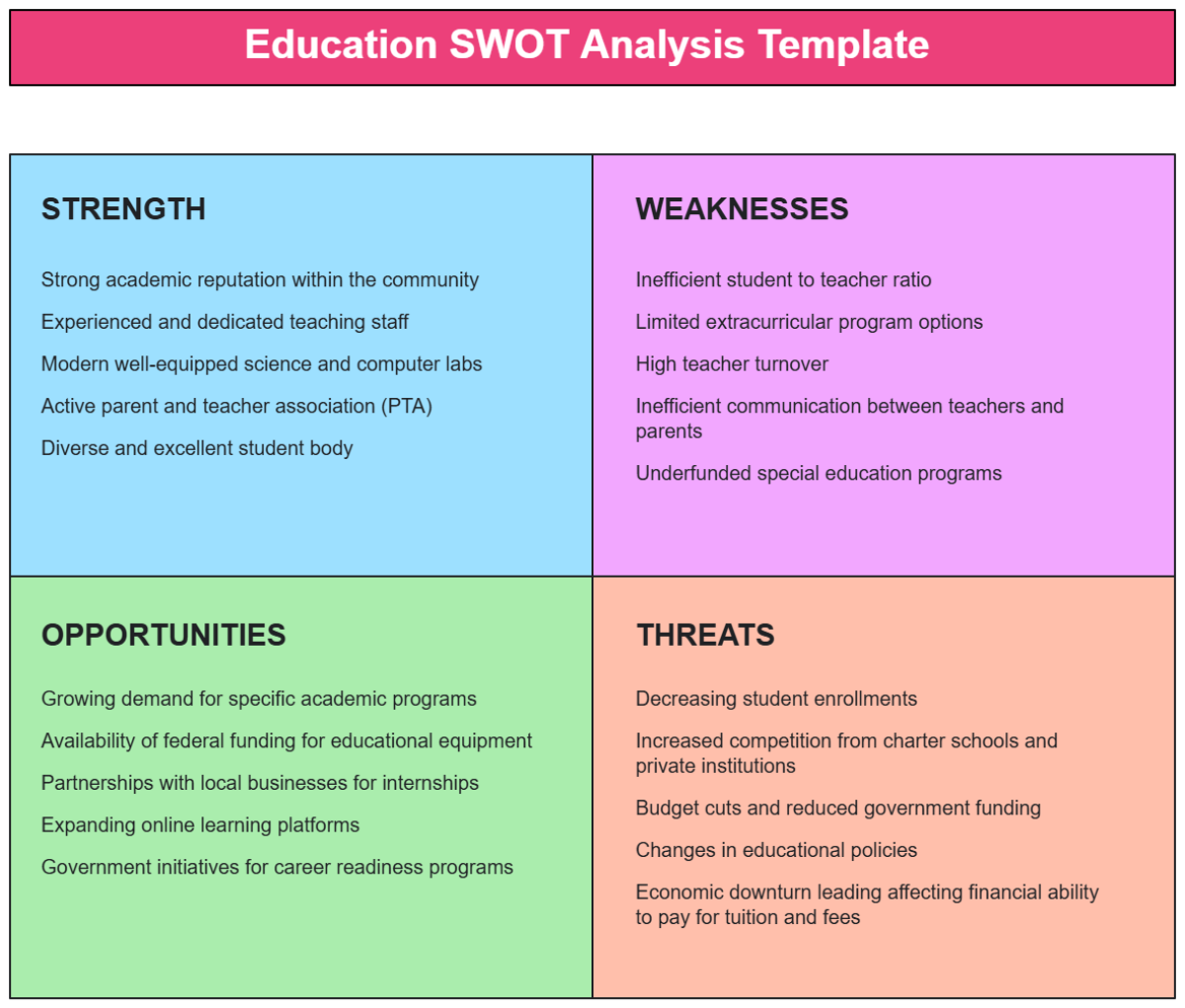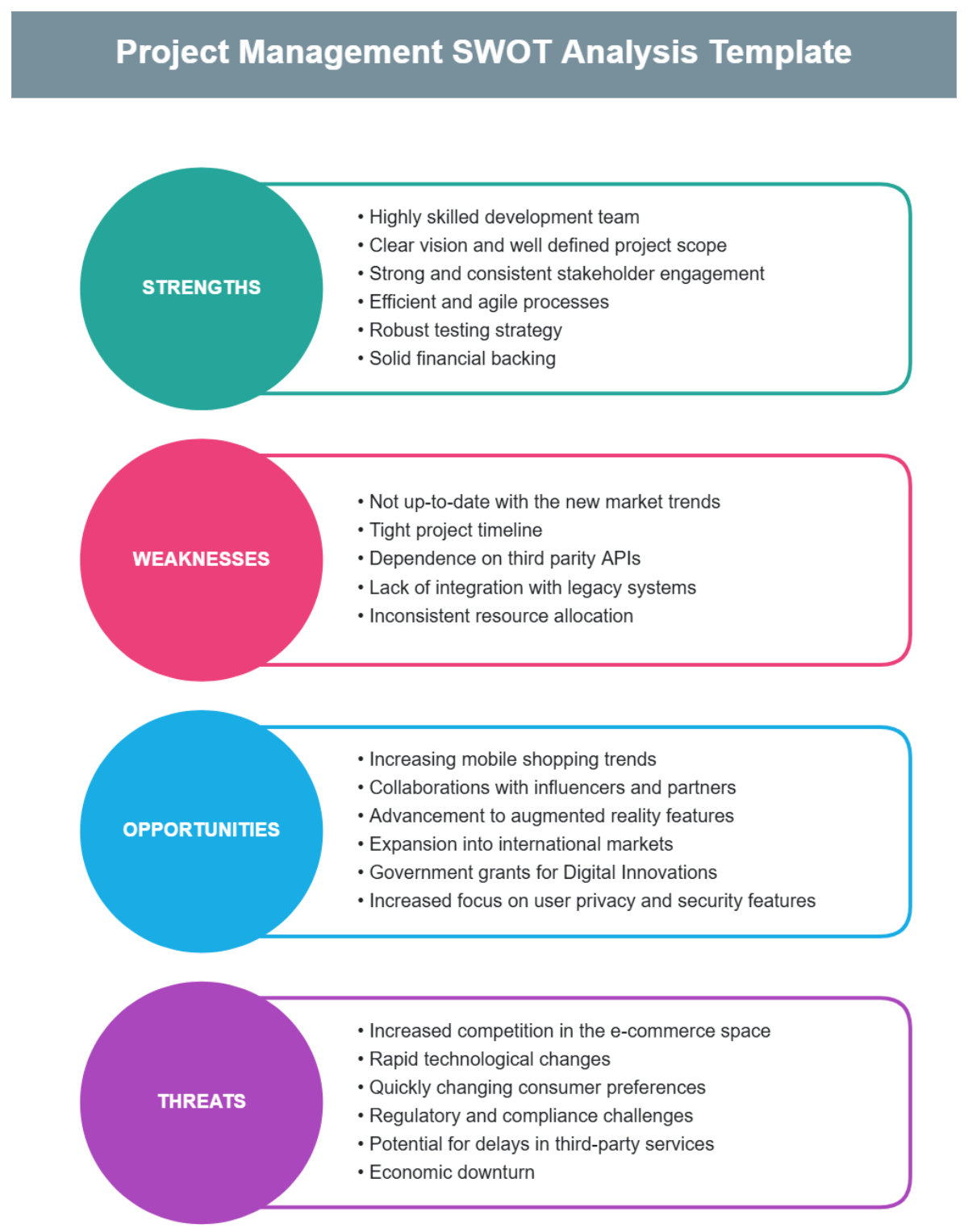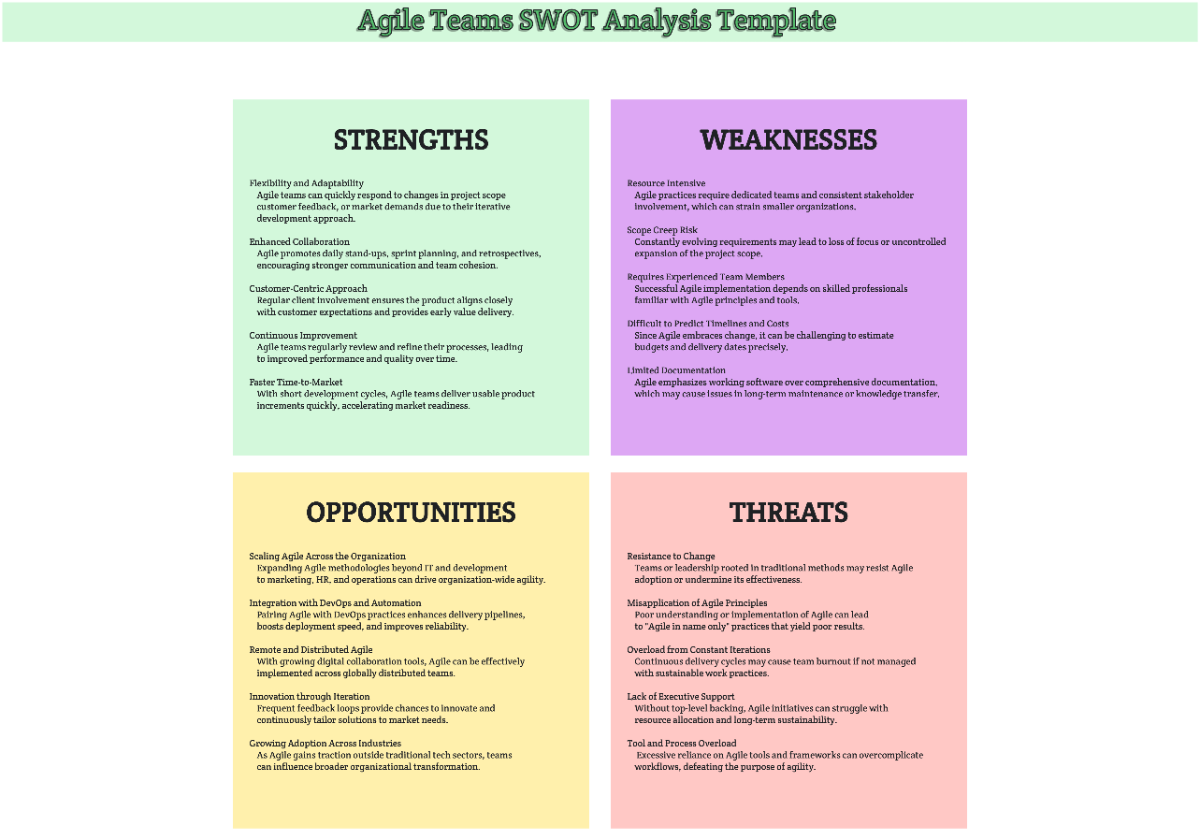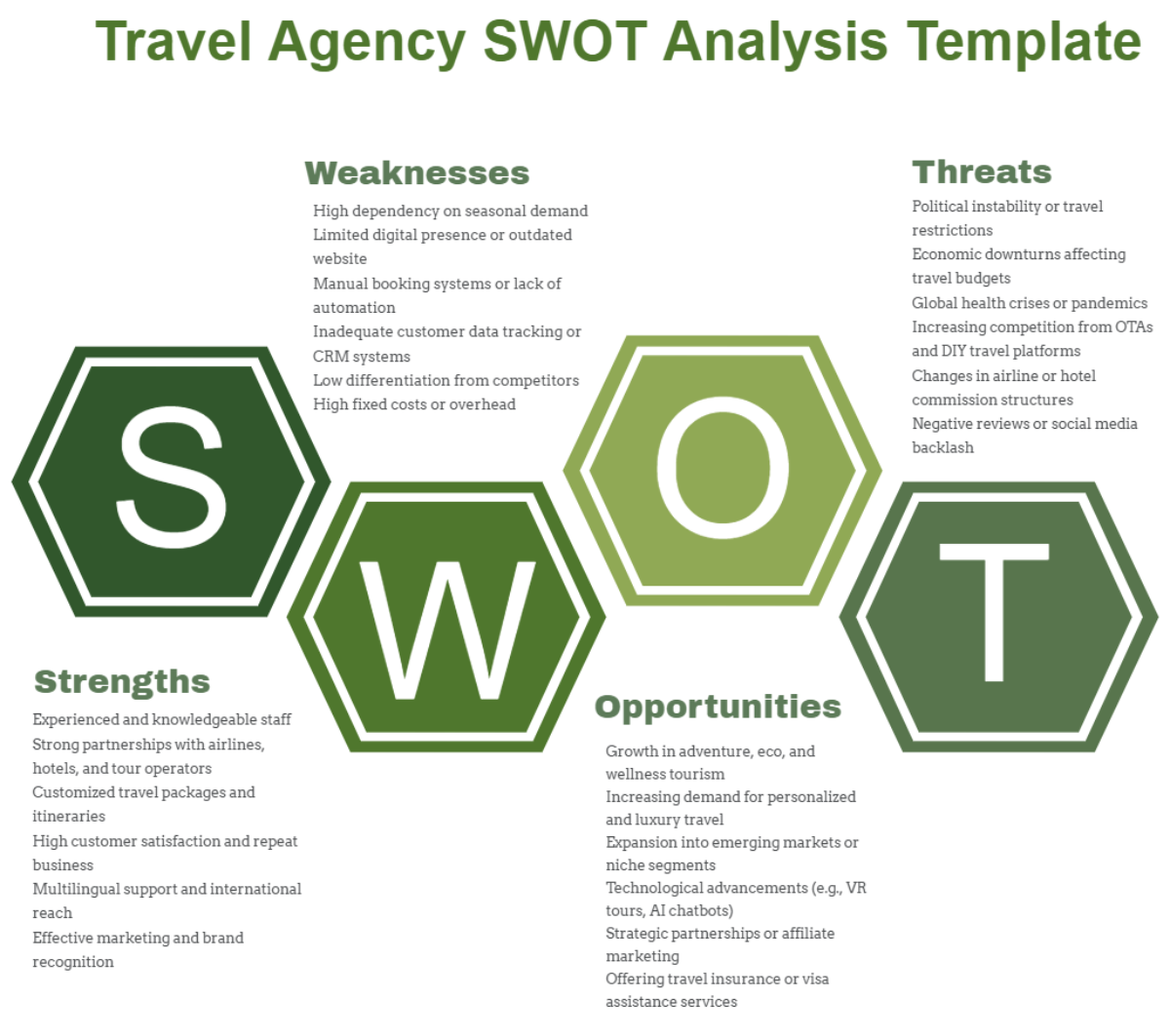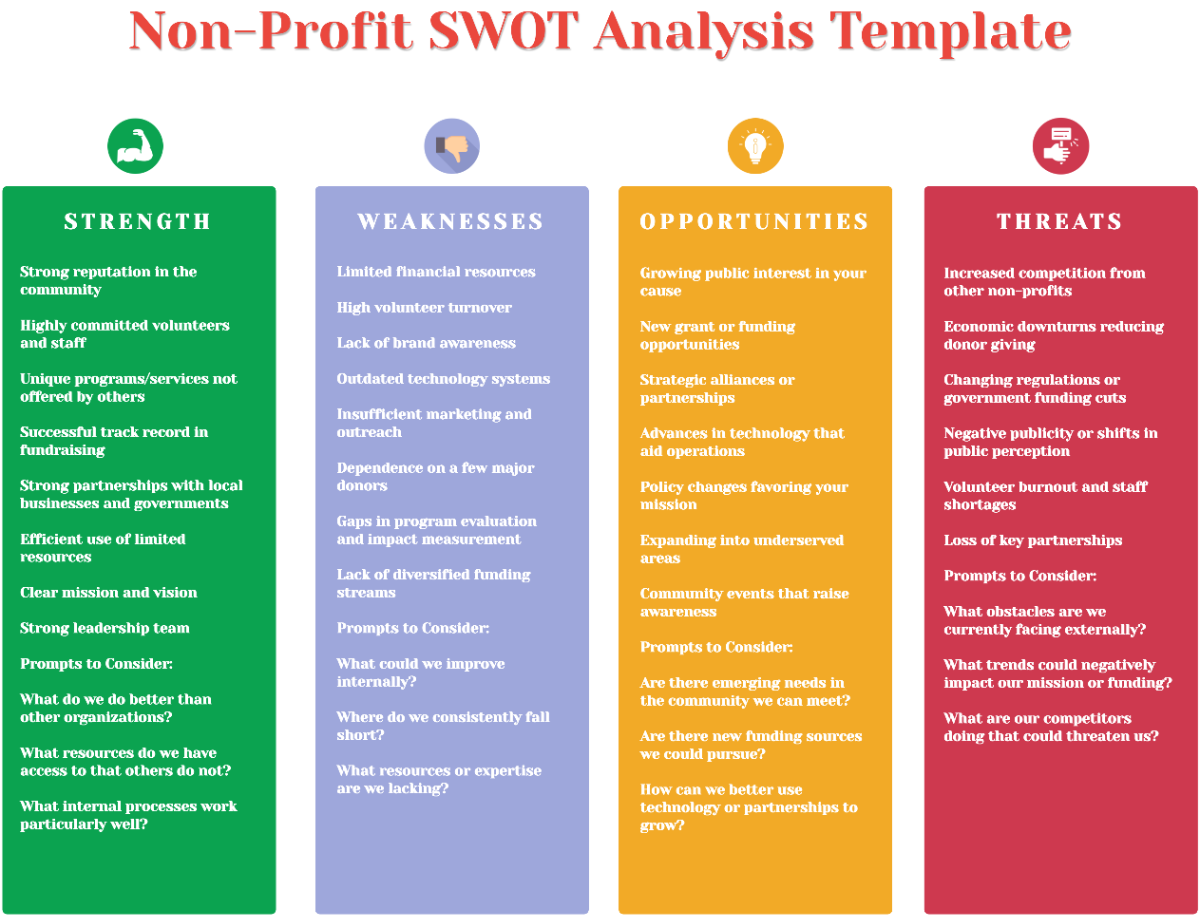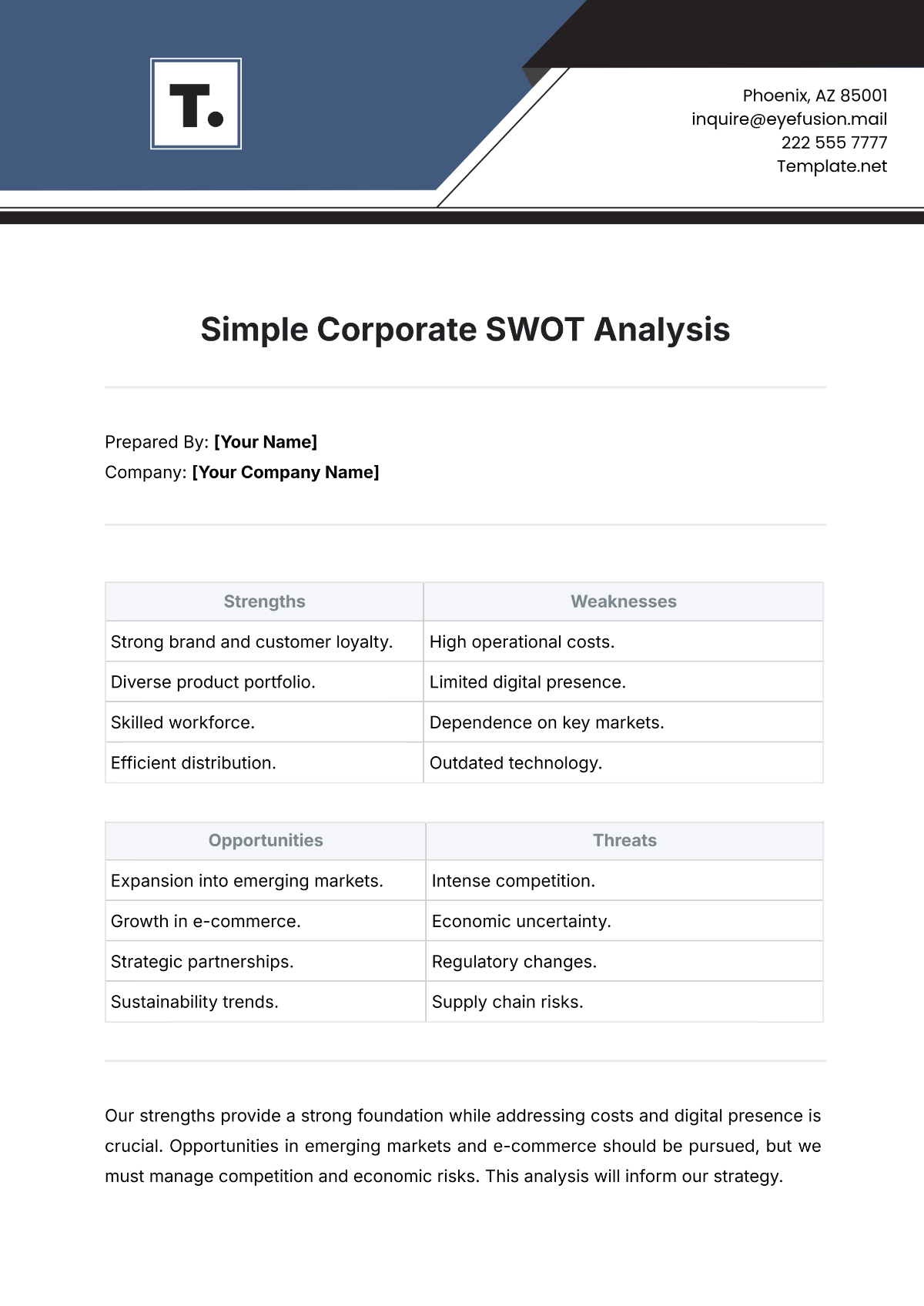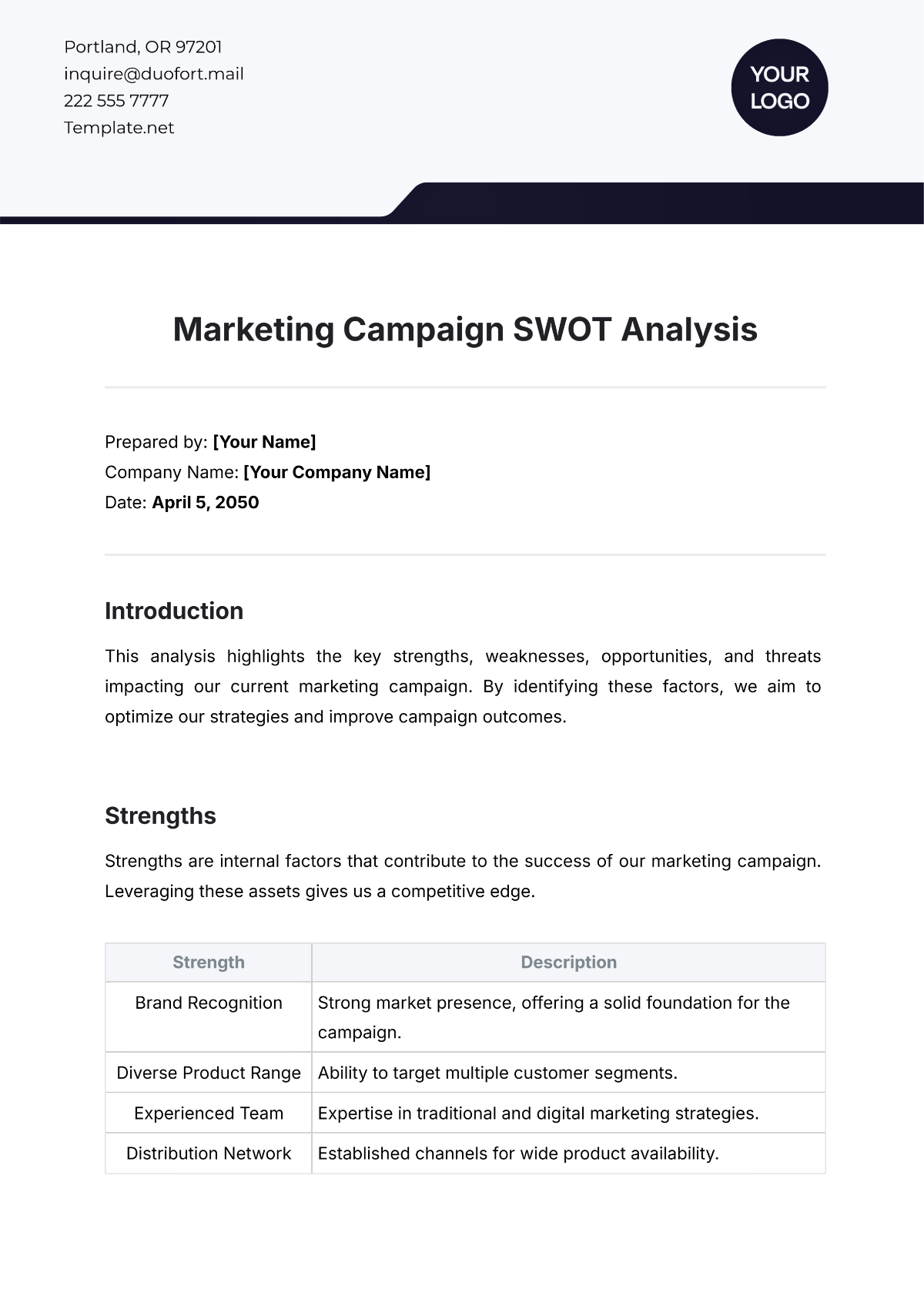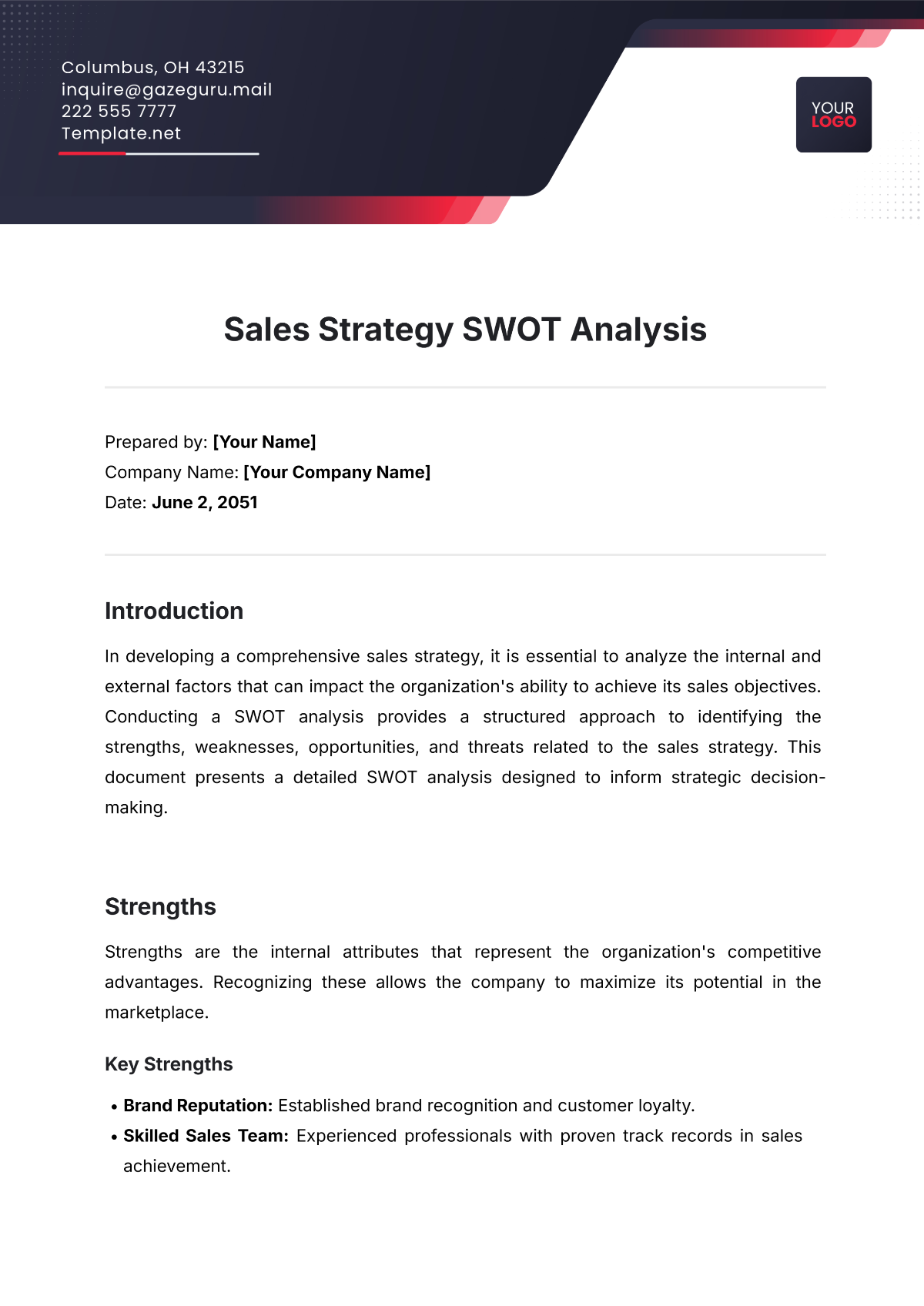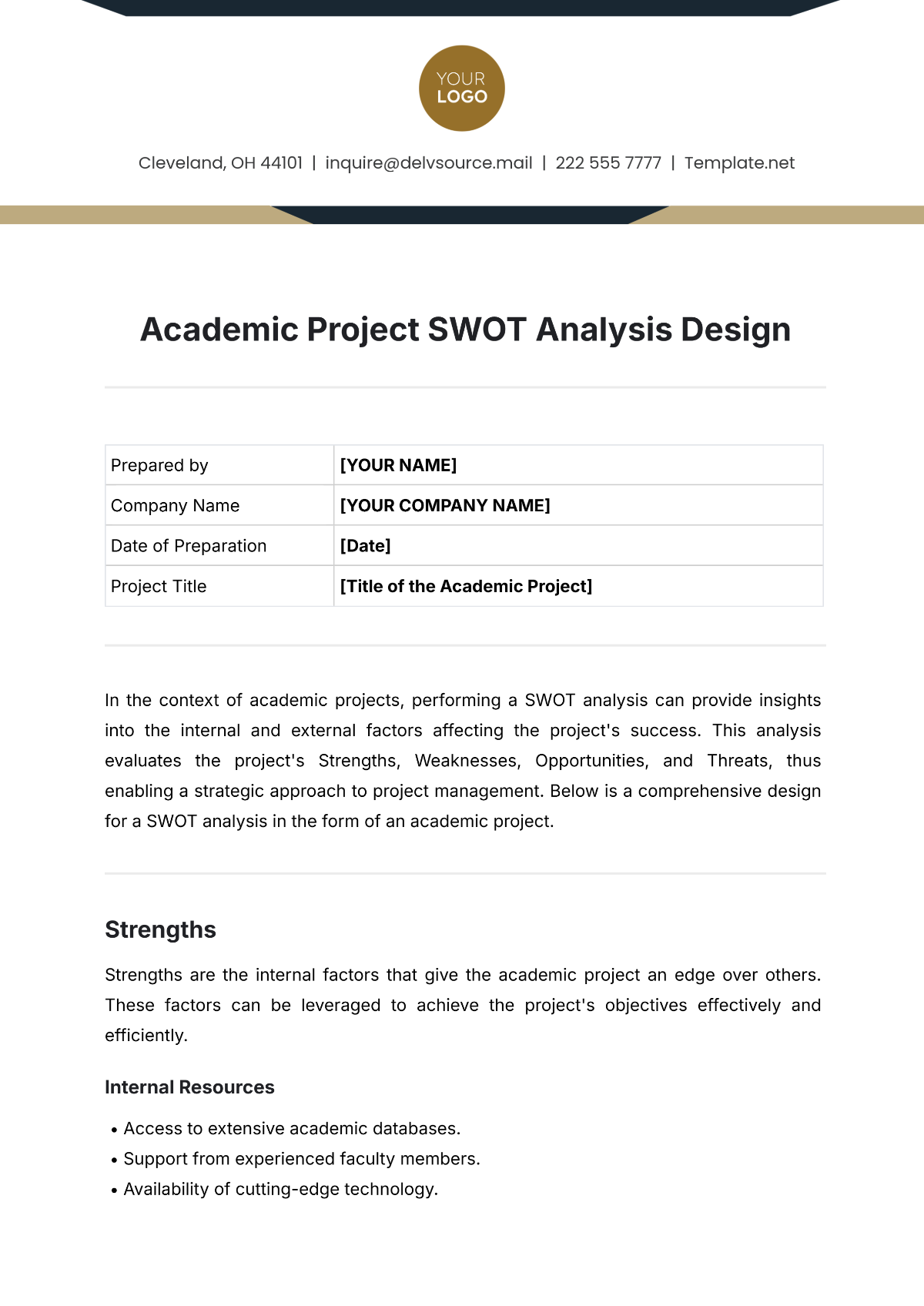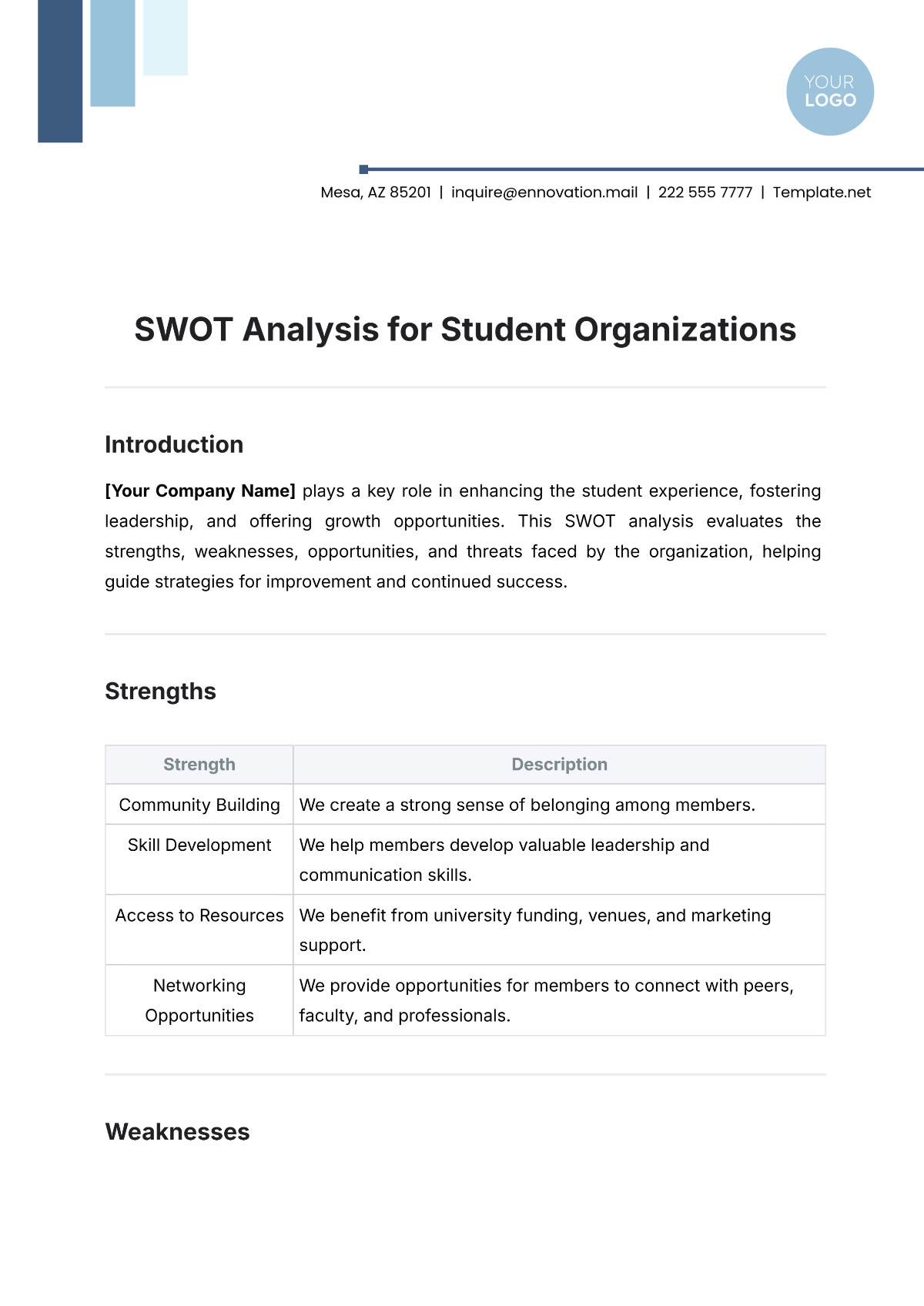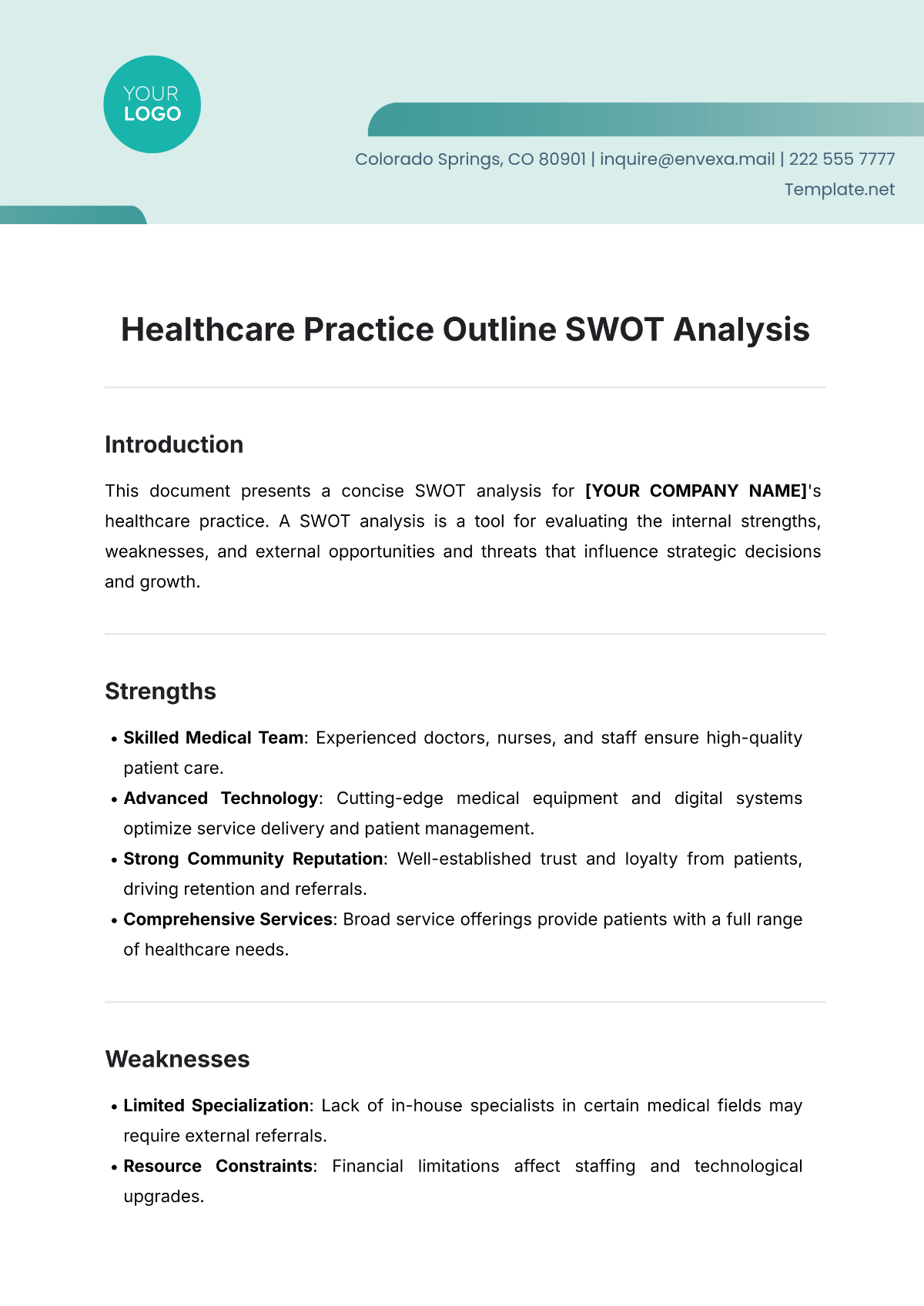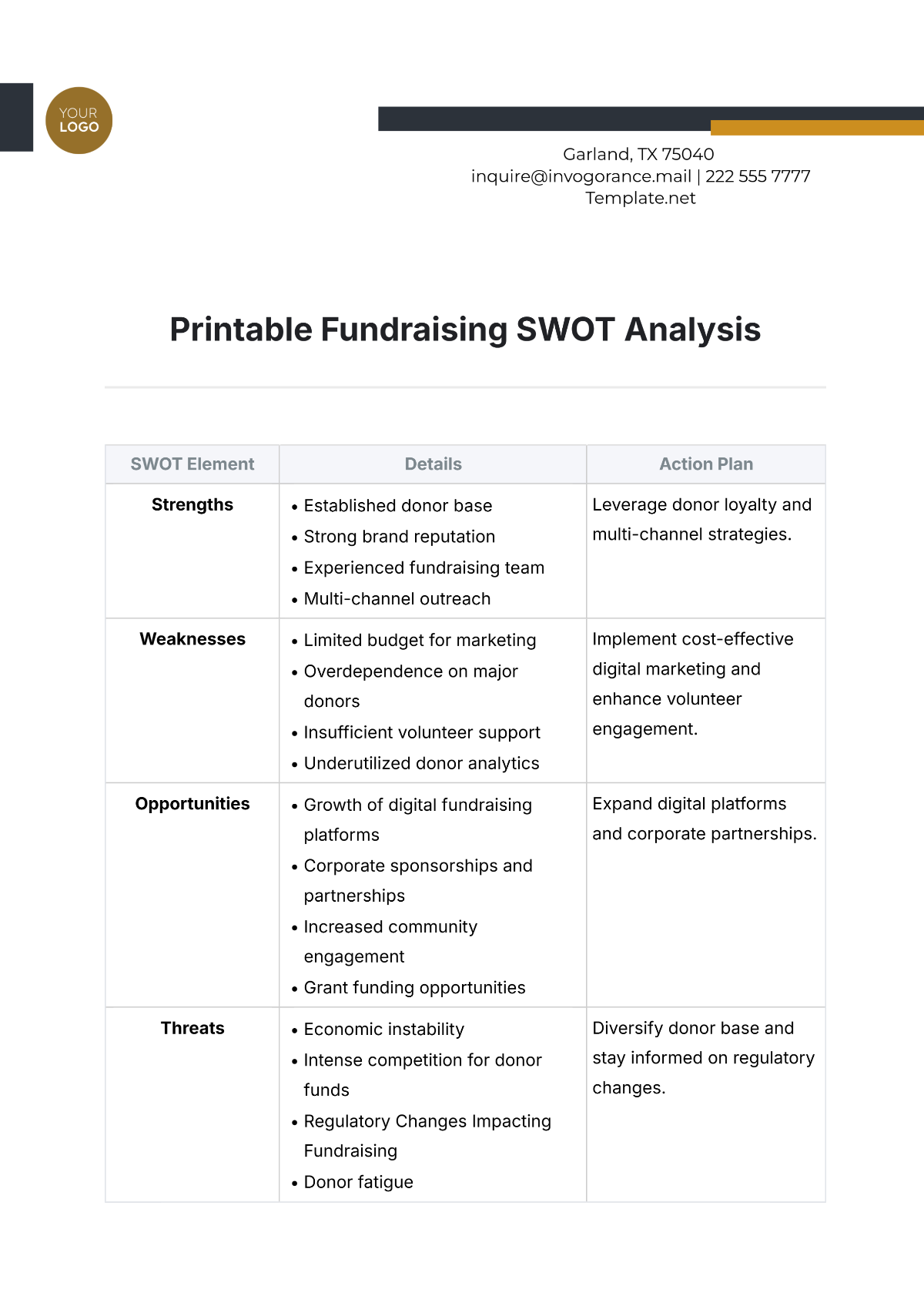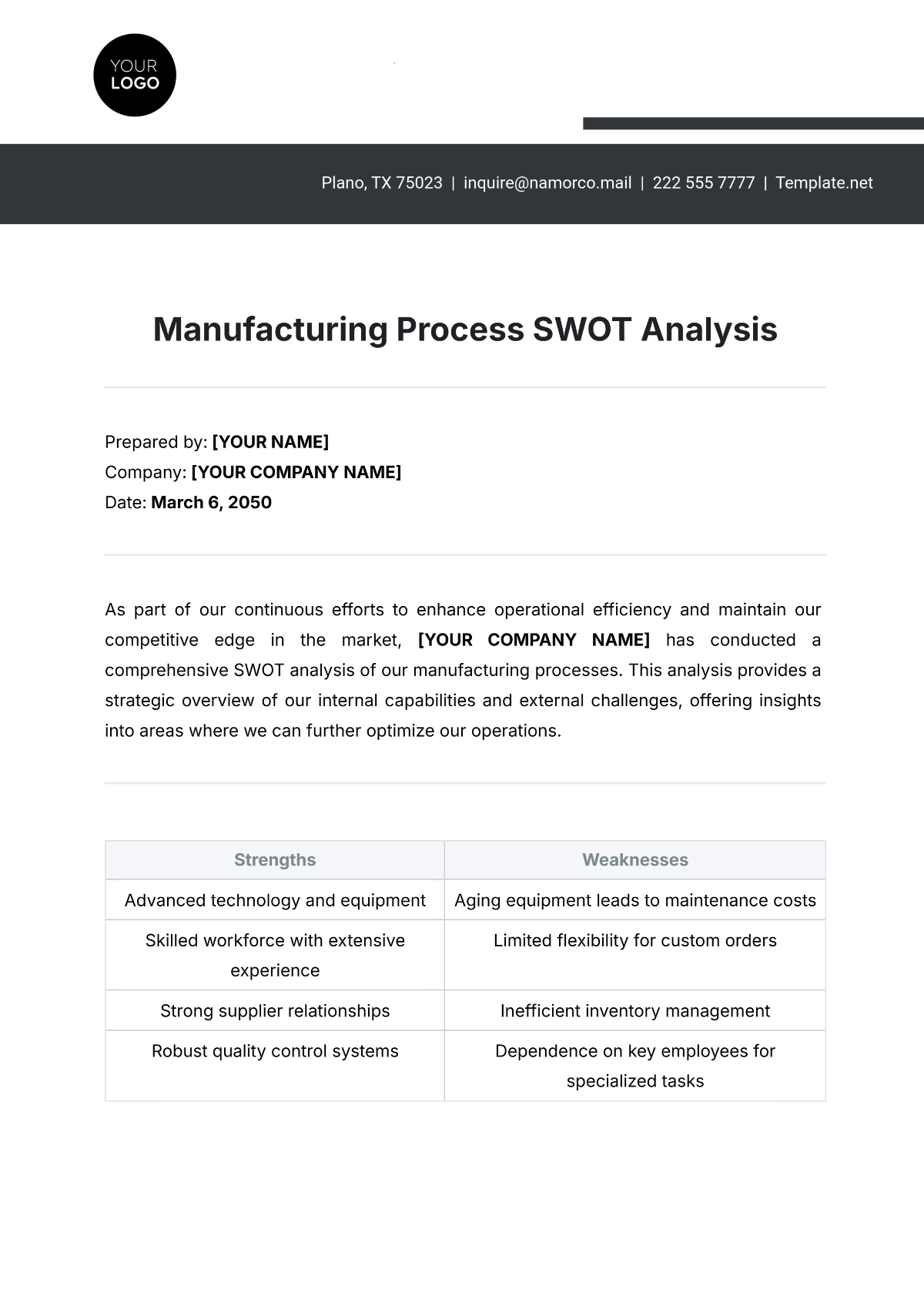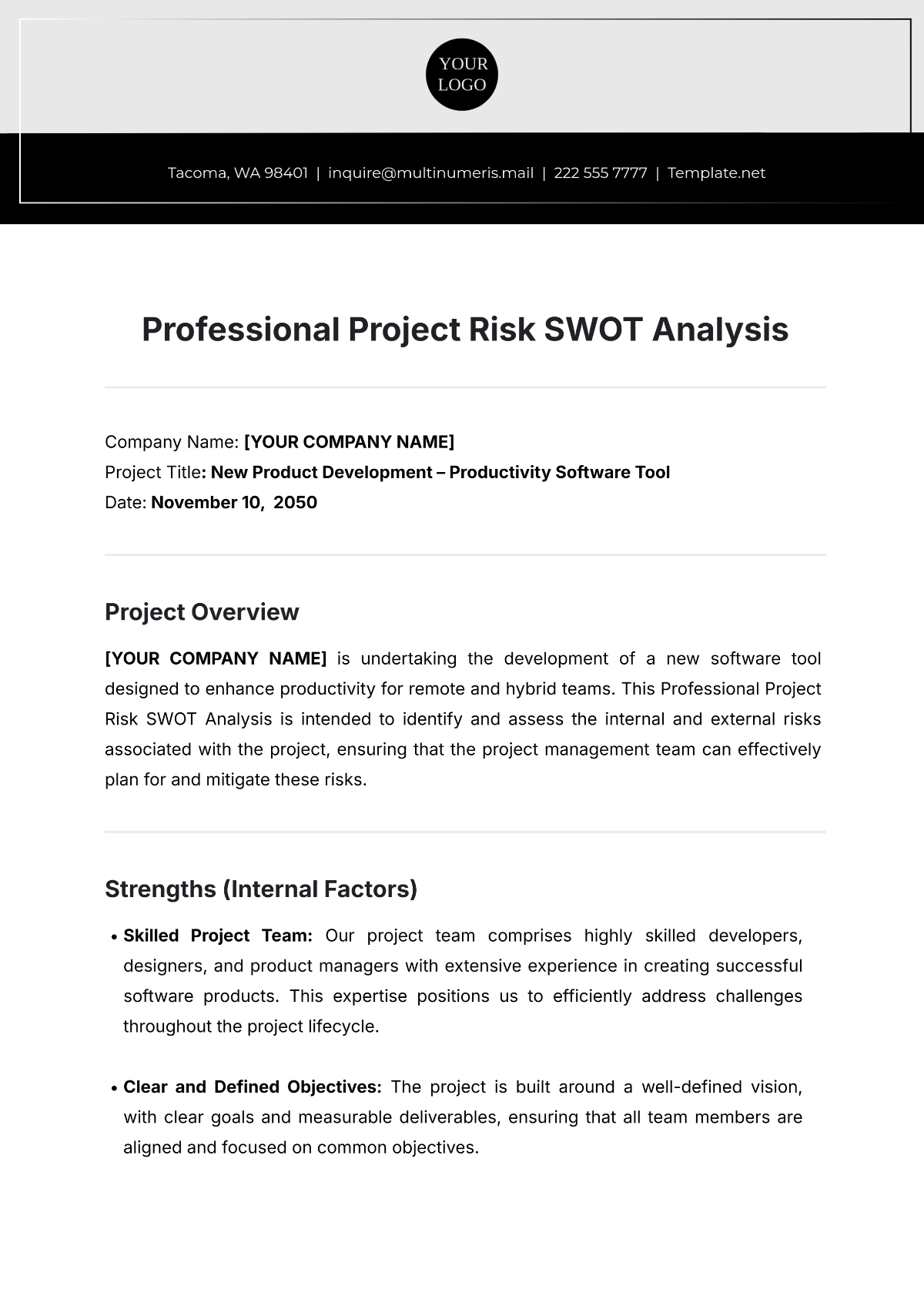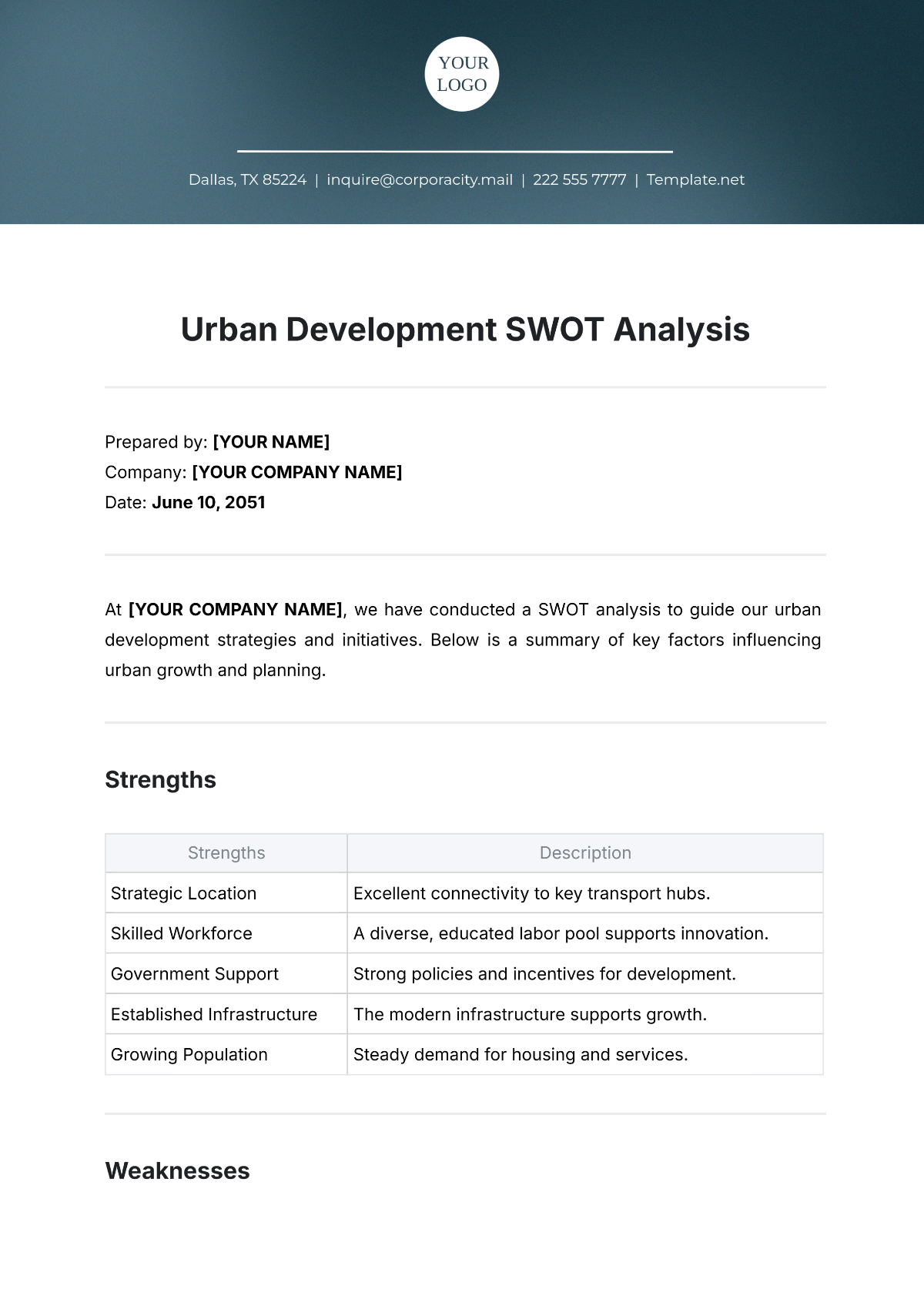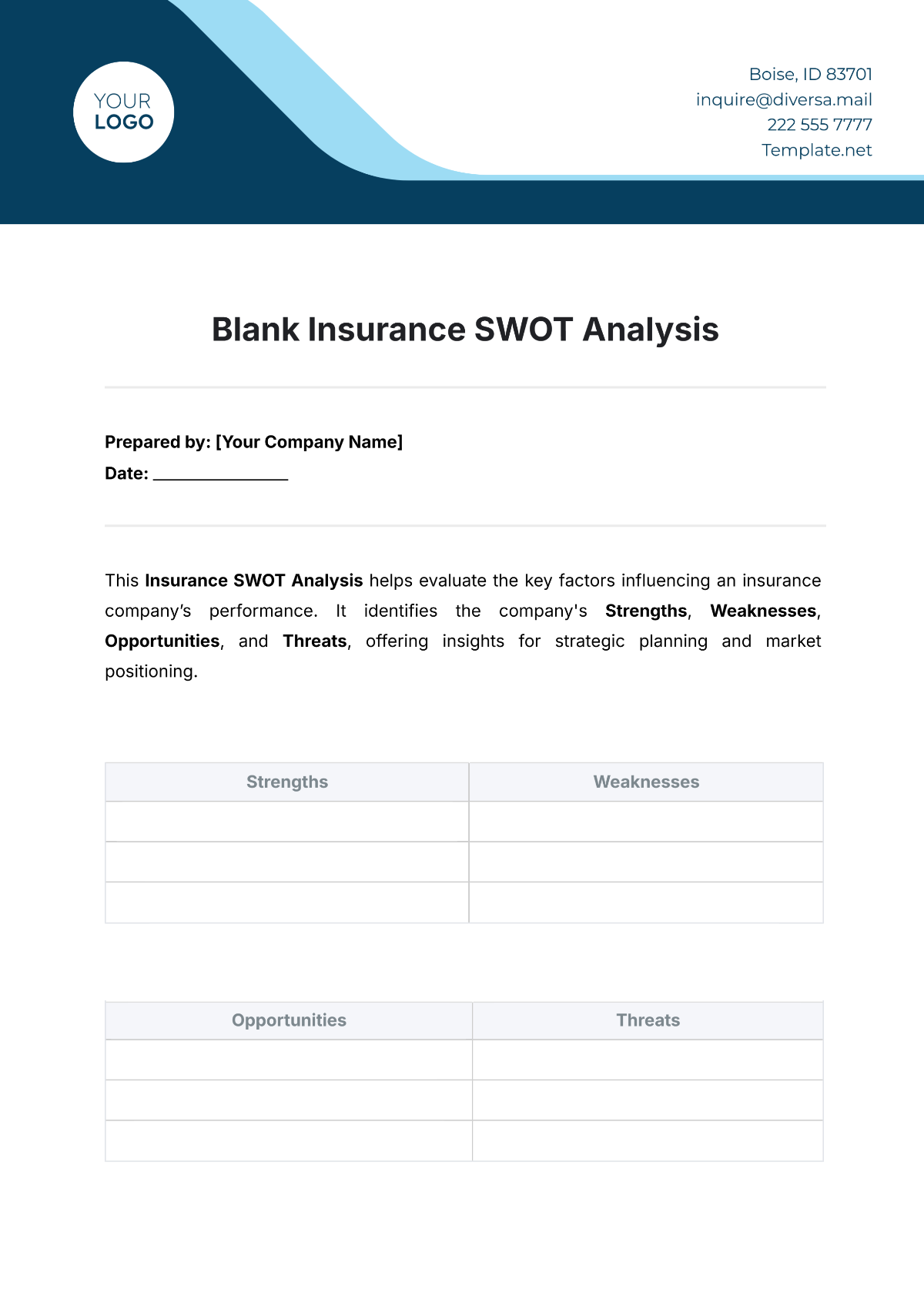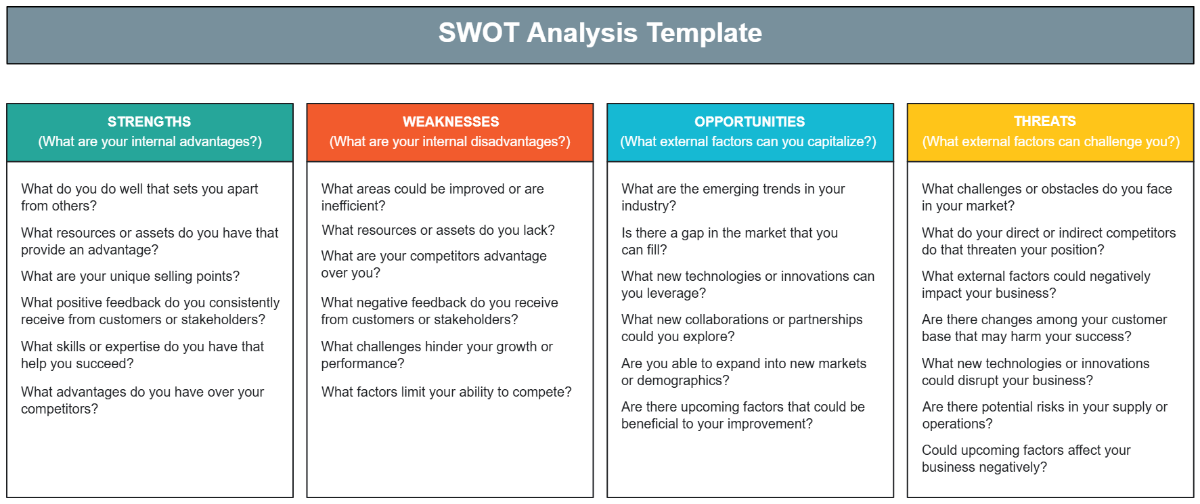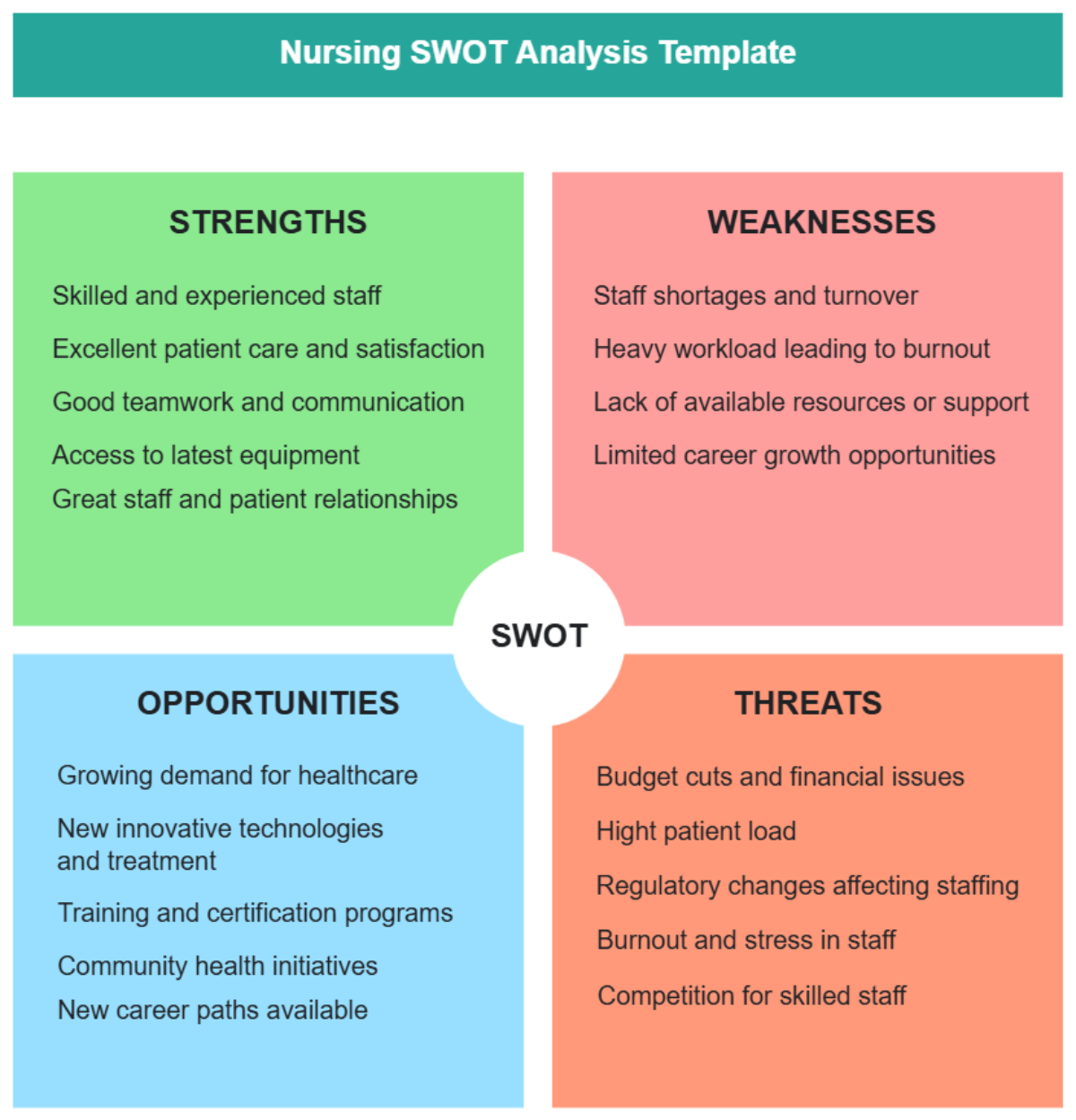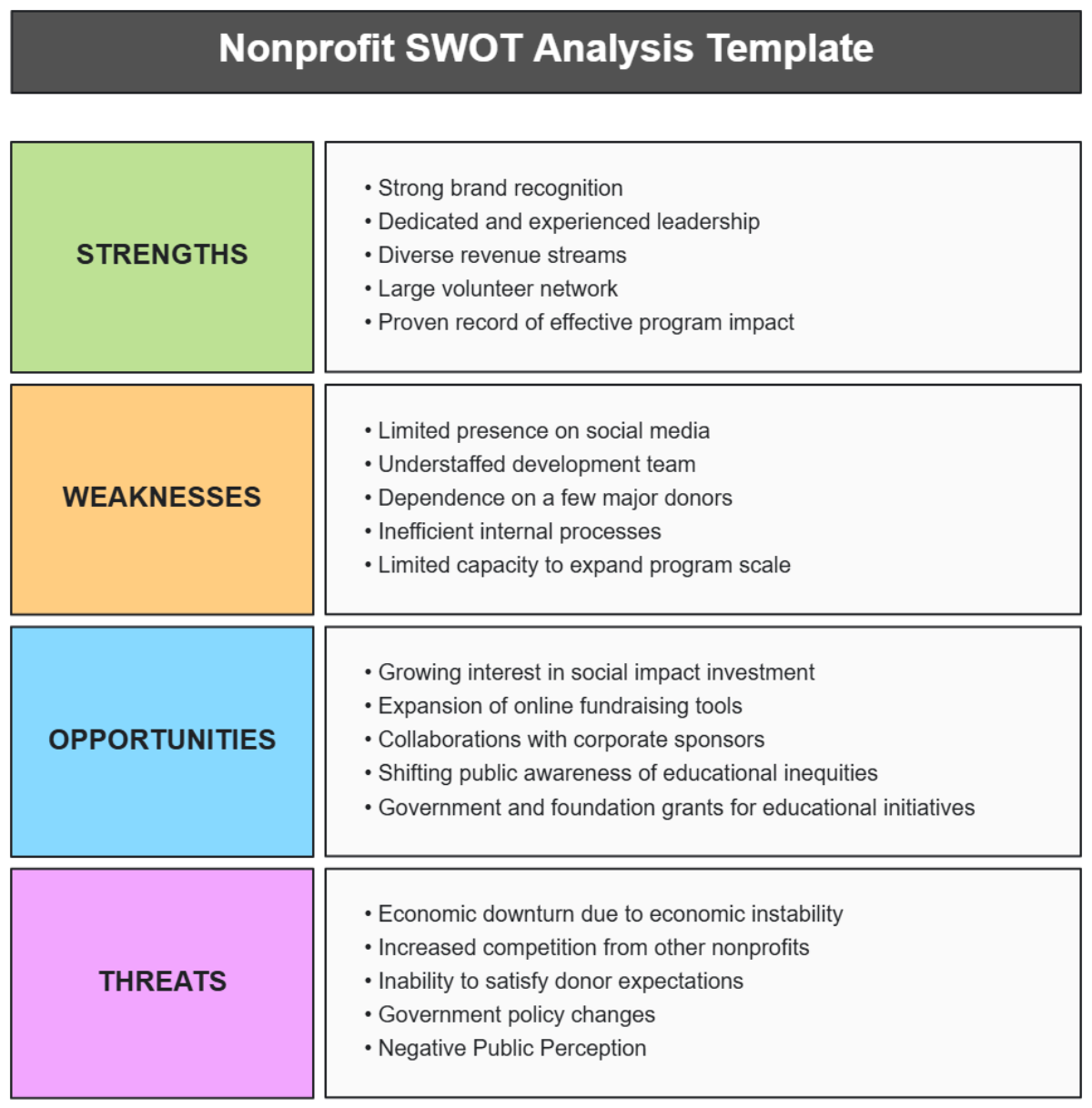COMPETITOR SWOT ANALYSIS
Prepared by: [YOUR NAME]
Email: [YOUR COMPANY EMAIL]
Address: [YOUR COMPANY ADDRESS]
Phone: [YOUR COMPANY NUMBER]
Website: [YOUR COMPANY WEBSITE]
I. Executive Summary
In this Competitive Landscape Analysis, we delve into the renewable energy sector's dynamics to provide strategic insights for [Your Company Name]. This analysis encompasses a comprehensive evaluation of key competitors in the solar, wind, and hydroelectric segments, aiming to guide [Your Company Name] in enhancing market competitiveness and seizing growth opportunities.
II. Analysis Objectives
Strategic Goals
Identify competitive advantages and areas for improvement.
Formulate effective strategies to strengthen market position.
Enhance [Your Company Name]'s strategic decision-making capabilities.
Scope
The analysis covers major competitors in the solar, wind, and hydro segments.
Data sources include industry reports, market trends, competitor financials, and expert opinions.
III. Competitive Landscape Overview
Market Overview
The renewable energy sector has witnessed significant growth, driven by increasing environmental awareness and government initiatives.
Market segments include solar, wind, and hydro, each with unique growth trajectories and adoption rates.
Competitor Profiles
SolarTech Solutions
Financial Performance: Revenue of $500 million in 2050, market share of 25%.
Technological Capabilities: Advanced solar panel technology, R&D investments in energy storage solutions.
Key Initiatives: Strategic partnerships with utility companies, expansion into emerging markets.
WindForce Inc.
Financial Performance: Revenue of $700 million in 2050, market share of 30%.
Technological Capabilities: Diverse wind turbine designs, and expertise in offshore wind projects.
Key Initiatives: Collaborations with government agencies for wind farm development, and investment in predictive maintenance technology.
HydroEnergy Systems
Financial Performance: Revenue of $400 million in 2050, market share of 20%.
Technological Capabilities: Efficient hydroelectric turbines, focus on sustainable energy practices.
Key Initiatives: Expansion into micro-hydro projects, and partnerships with environmental organizations.
IV. Competitor SWOT Analysis
SolarTech Solutions
Strengths
Innovative solar panel technology with high efficiency.
Strategic partnerships with government entities.
Established brand reputation in the solar energy market.
Weaknesses
Reliance on government subsidies for profitability.
Limited diversification beyond solar energy products.
Opportunities
Growing demand for renewable energy solutions.
Expansion into international markets like Asia-Pacific.
Threats
Intense competition from new entrants and established players.
Regulatory changes impacting solar energy incentives.
WindForce Inc.
Strengths
The diverse portfolio of wind turbine designs catering to various wind conditions.
Strong presence in offshore wind farm projects.
Robust supply chain and logistics capabilities.
Weaknesses
Limited expertise in other renewable energy sectors.
Vulnerability to weather-related disruptions affecting operations.
Opportunities
Increasing investments in onshore wind projects.
Collaboration potential for hybrid energy solutions.
Threats
Regulatory uncertainties impacting wind energy subsidies.
Technological advancements in competing energy sectors.
HydroEnergy Systems
Strengths
Efficient hydroelectric turbines with high output.
Commitment to sustainability and environmental stewardship.
A strong network of partnerships with environmental organizations.
Weaknesses
Limited scalability compared to solar and wind energy.
Dependence on seasonal water availability for optimal performance.
Opportunities
Growing interest in micro-hydro projects for decentralized energy generation.
Collaborations with governments for hydroelectric infrastructure development.
Threats
Fluctuations in water availability due to climate change.
Competitor advancements in renewable energy storage technologies.
V. Market Positioning Analysis
Competitive Benchmarking
[Your Company Name]'s market share, growth trajectory, and customer perception compared to competitors.
Identification of areas where [Your Company Name] can differentiate and gain market share.
Market Trends and Forecast
Analysis of emerging trends such as smart grid integration, energy storage advancements, and regulatory shifts.
Forecasting market growth rates and potential disruptions impacting the renewable energy sector.
VI. Key Insights and Recommendations
Strategic Insights
SolarTech Solutions leads in solar innovation but faces challenges with diversification.
WindForce Inc. dominates in wind energy but needs to expand expertise beyond wind solutions.
HydroEnergy Systems offers opportunities in micro-hydro projects but must address scalability concerns.
Recommendations
[Your Company Name] should focus on technological diversification to capture market share across multiple renewable energy segments.
Strategic partnerships with complementary firms can accelerate market penetration and innovation.
Investment in R&D for energy storage solutions and grid integration technologies is crucial for long-term growth.
VII. Implementation Roadmap
Actionable Steps
Develop a phased approach for product diversification and market expansion.
Establish partnership frameworks and collaboration agreements.
Allocate resources for R&D initiatives and pilot projects.
Risk Assessment
Identify potential risks such as regulatory changes, supply chain disruptions, and technological obsolescence.
Implement risk mitigation strategies and contingency plans.
VIII. Conclusion
The Competitive Landscape Analysis underscores [Your Company Name]'s potential for growth and innovation in the dynamic renewable energy sector. By leveraging strengths, addressing weaknesses, and capitalizing on market opportunities, [Your Company Name] can emerge as a leader in sustainable energy solutions, driving environmental impact and business success.
